1. Feelings for vs. Feelings about
You’ve just met the boy or girl of your dreams! Do you say that you have “feelings for” or “feelings about” him or her?
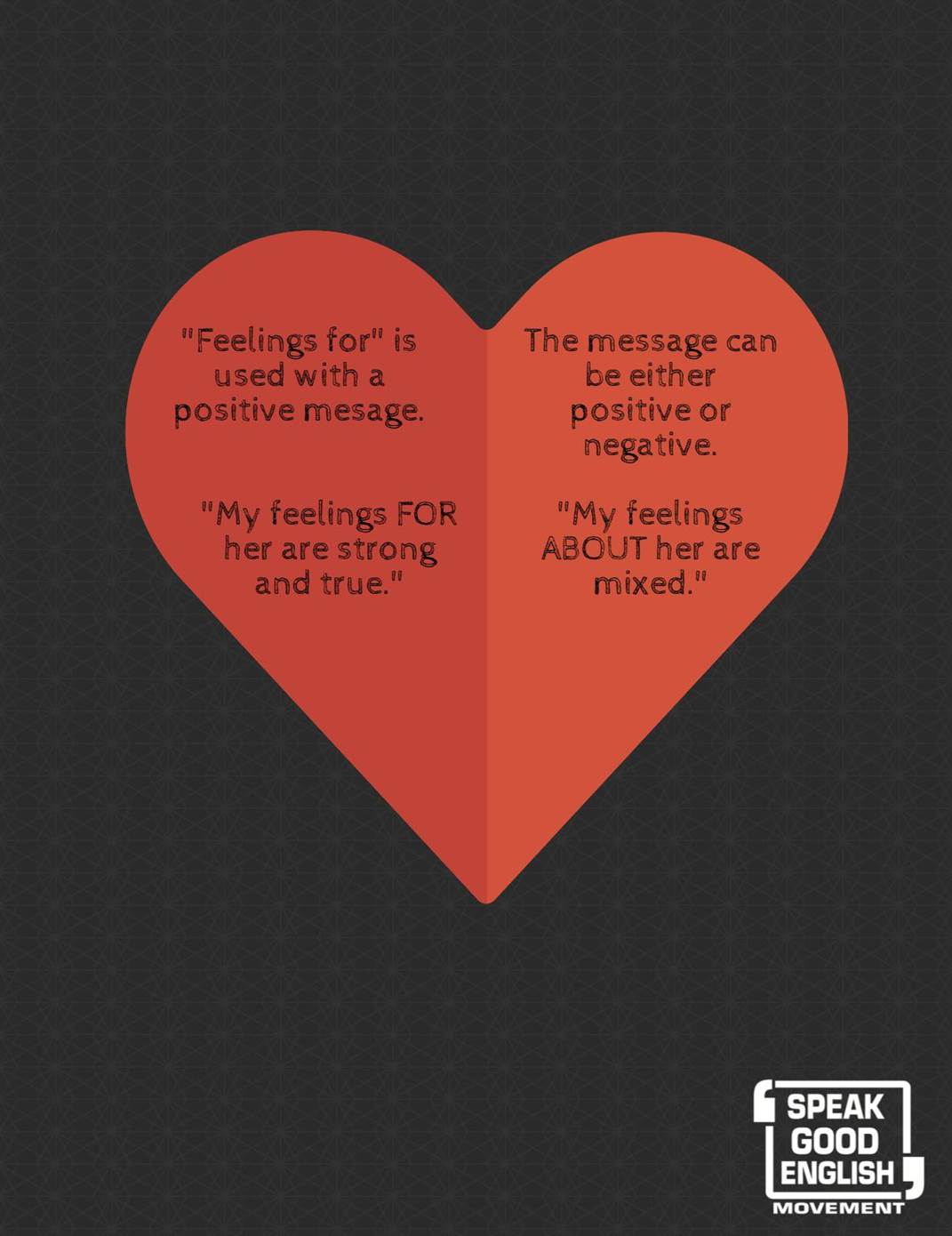
2. What is the difference between ‘abscence’ and ‘absence’?
"Abscence" is a common spelling error. There is no such word!
"Absence" refers to someone or something being missing, for example, “The students took advantage of their teacher’s absence to cause mischief”.
3. Accept vs. Except
Candidates would reply an email to say that they “except” the job offer! The word “except” means to exclude. Avoid this embarrassing mistake by keeping this tip in mind.

4. Adapt vs. Adopt
Your friend excitedly tells you that she’s “adapted” a new puppy from the animal shelter. The words “adapt” and “adopt” are often used interchangeably but they have different meanings.
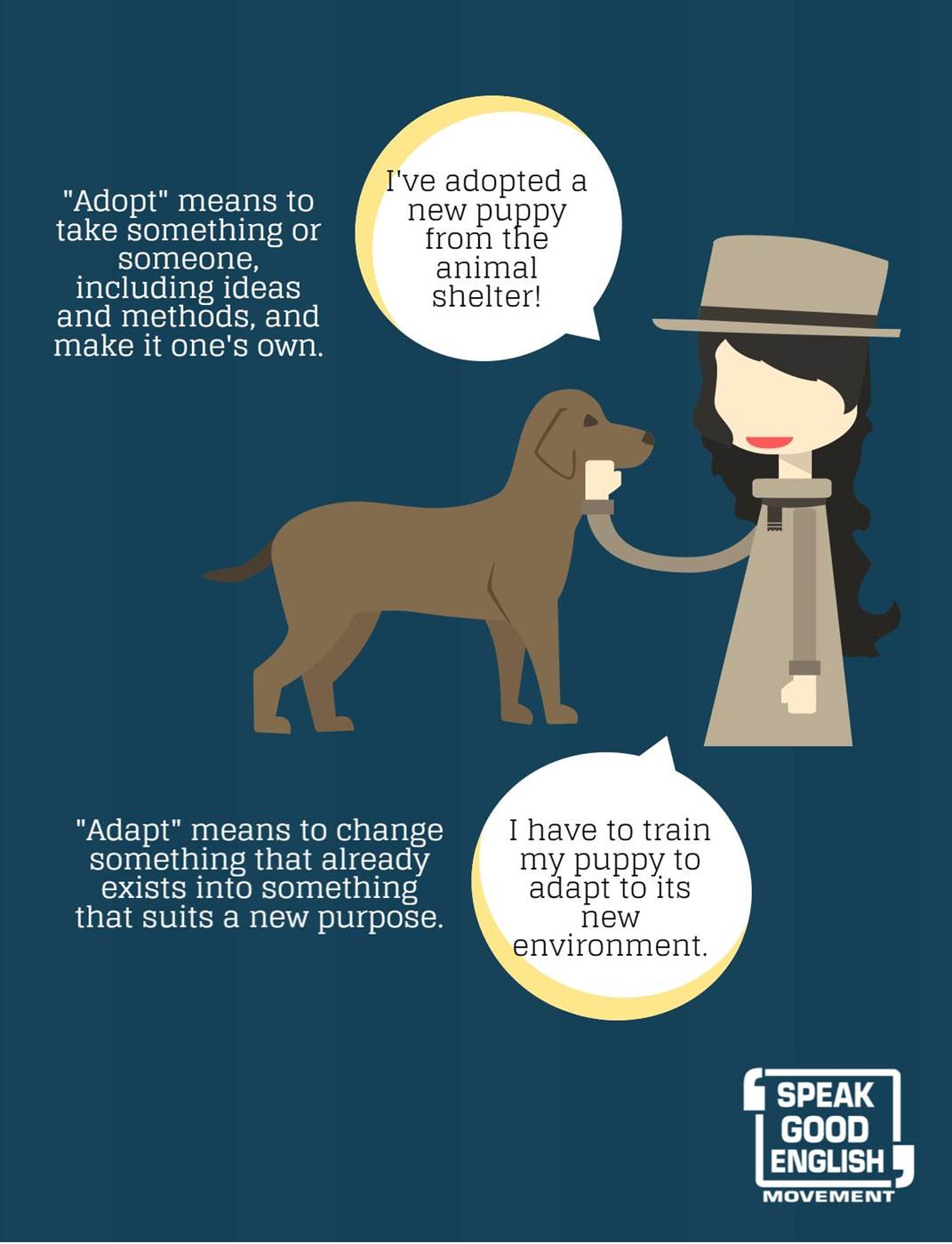
5. Scared vs. Afraid
There’s a sudden blackout and your friend squeezes your hand tightly and whispers, “I am scared of the dark!” We would use “scared” when talking about a specific situation, e.g. “I was scared by a spider that suddenly jumped on me.”

6. Among vs. Between
Should I be sharing my sweets “between” or “among” my friends?
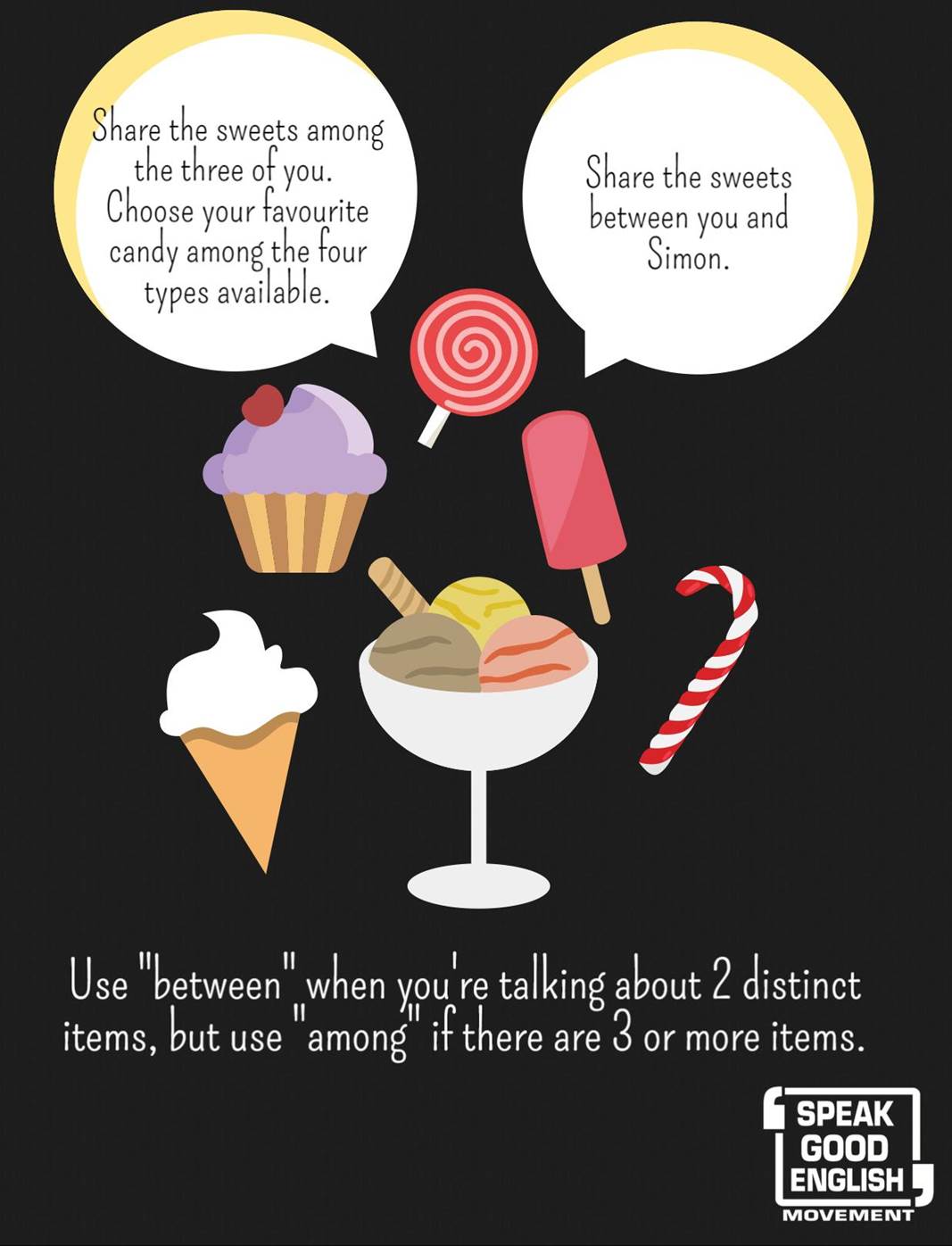
7. Amount vs. Number
Although they sound the same when spoken, these two phrases have different meanings.
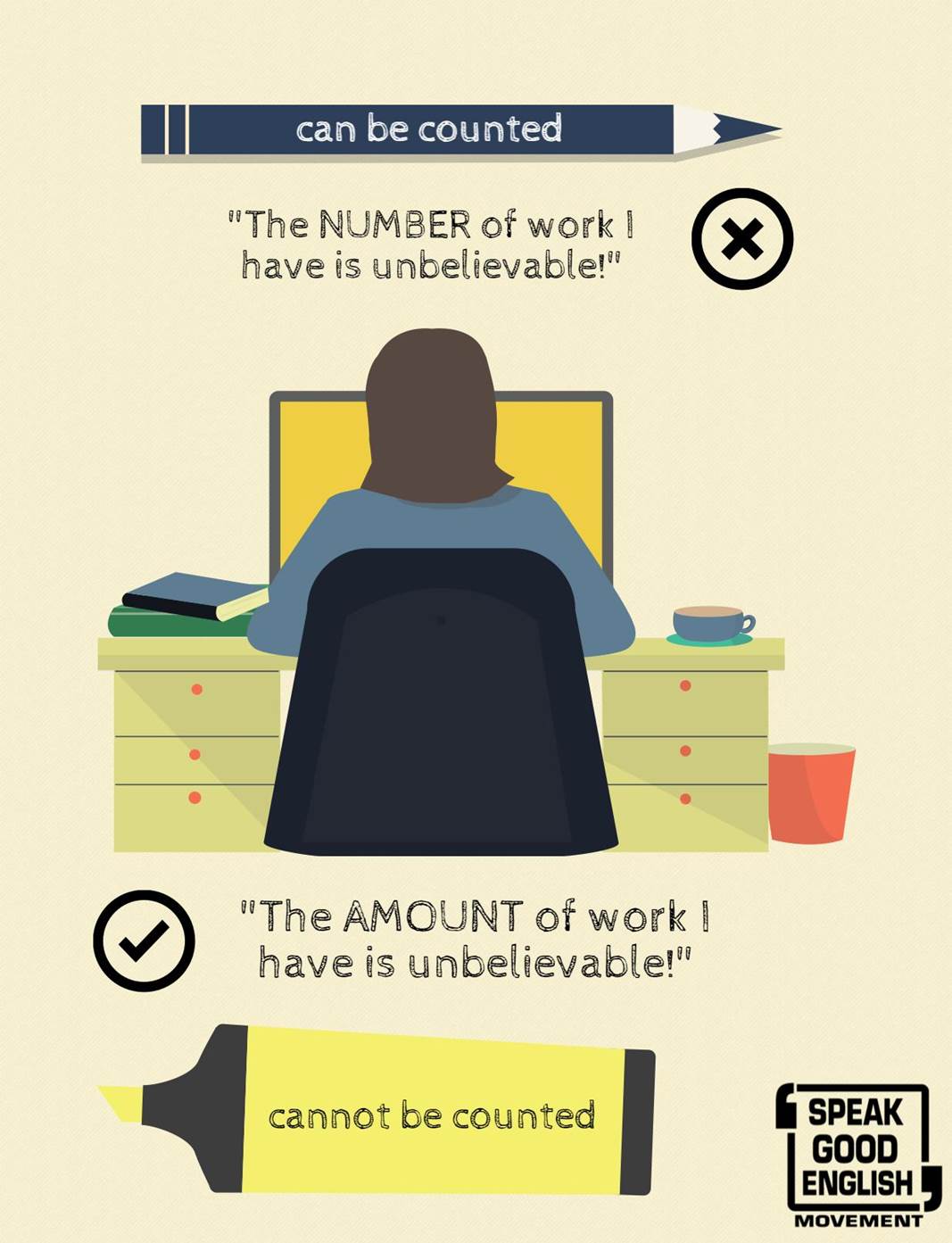
8. What is the difference between ‘attached is’ and ‘attached are’? Do we use “attached is some information for
your reference” or “attached are some information for your reference”?
‘Information’ is a non-count noun (i.e. you cannot put a number in front of, or an ‘s’ to the back of these words) and only has a singular form so you should use ‘is’ here.
Other examples of non-count nouns include ‘stuff’ and ‘luggage’.
9. Do we use “following is the details you need” or “followings are the details you need”?
Both phrases are awkward. We would rather say “Here are the details you need”.
However, if you really need to use the word “following” in your sentence, we suggest saying “The following are the details you need”. We do not use ‘followings‘ because the word simply does not exist. We use ‘are’ because of the ‘details’ (plural).
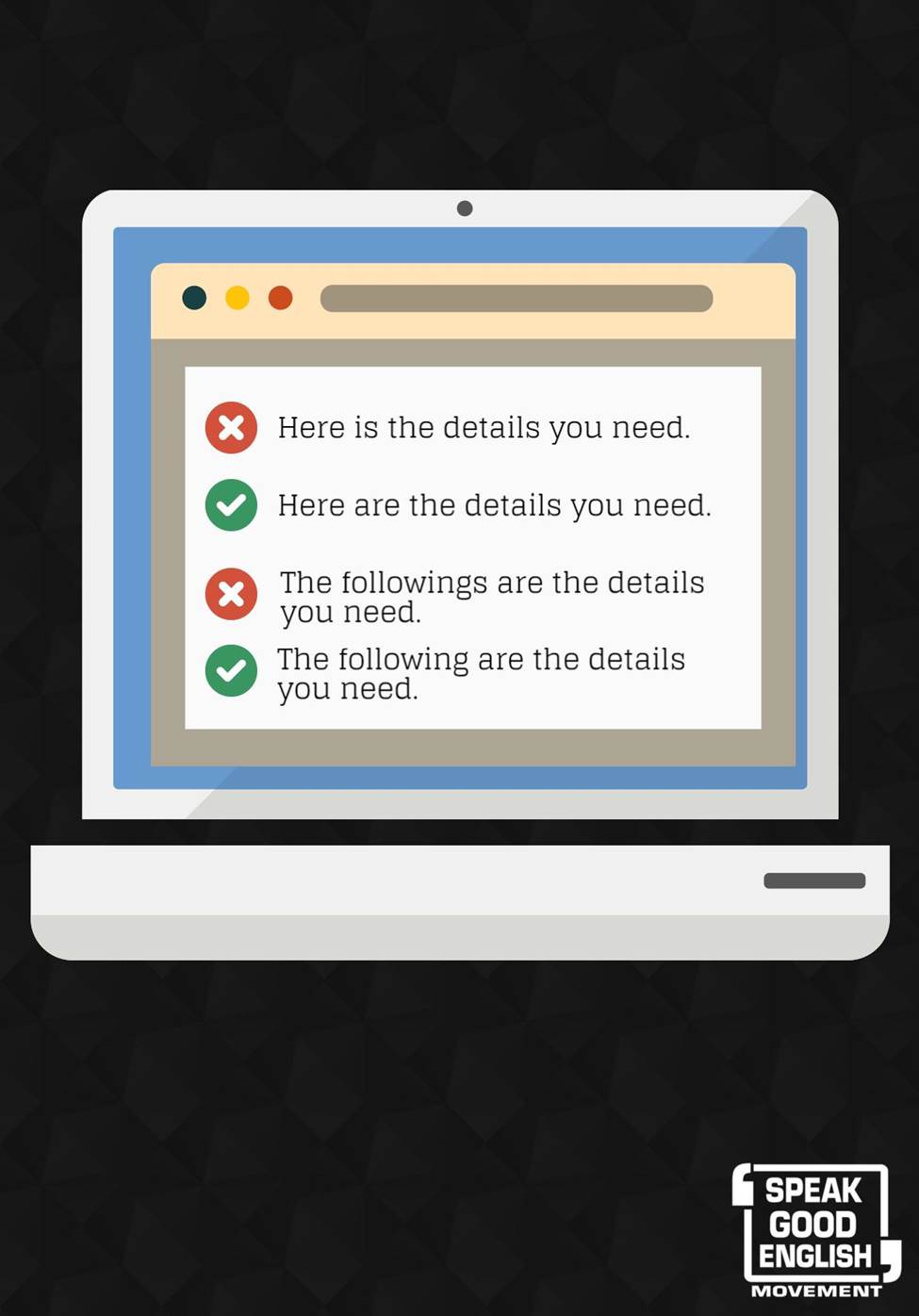
10. Fragrance vs. Aroma
Your friend brings a bottle of wine to your house-warming party and says that he likes the fragrance of the wine. What’s the correct way to describe wine? Another phrase you could use would be the “bouquet of the wine”, an expression used by wine experts when referring to wines that are mature.
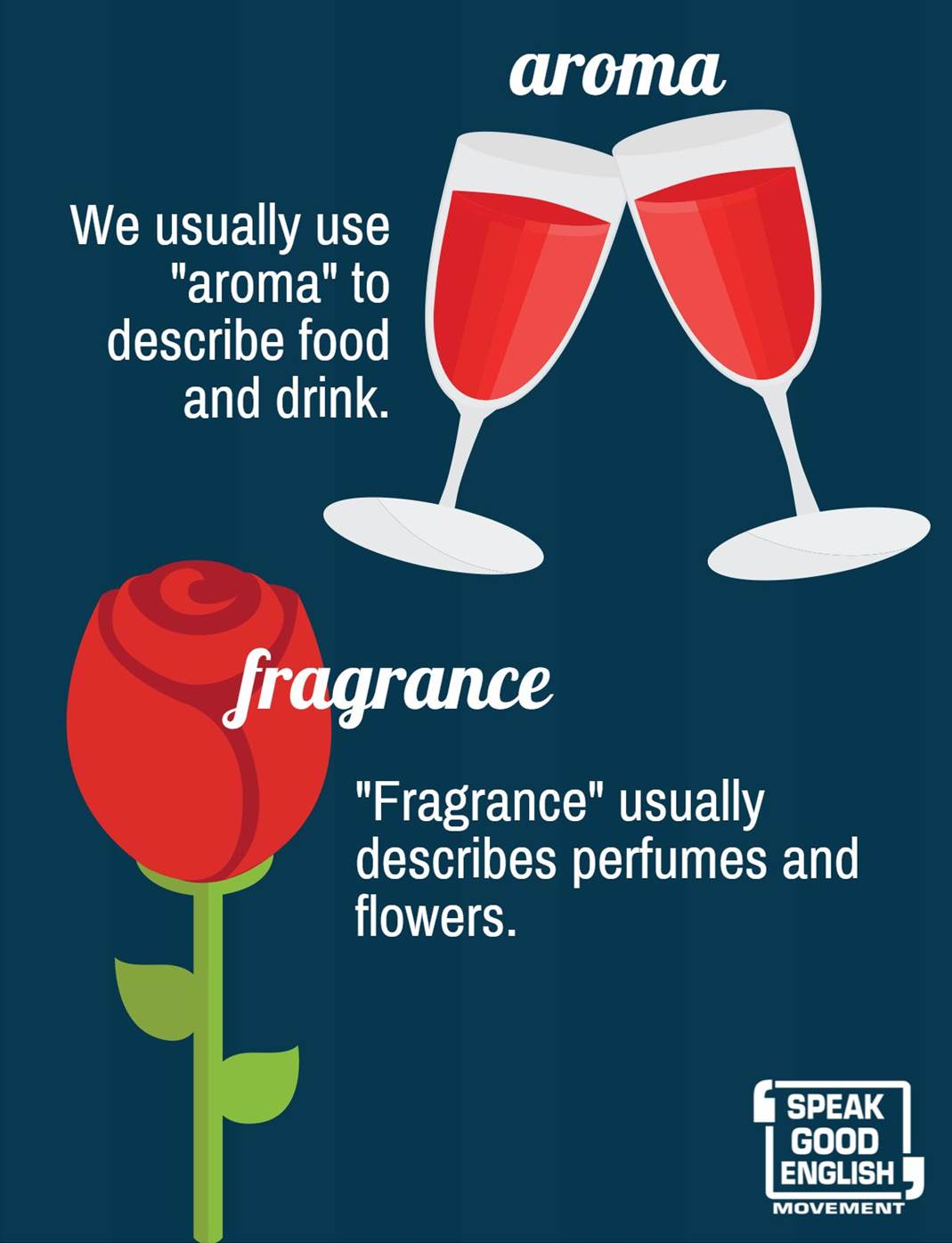
11. What is the difference between ‘ensemble’ and ‘assemble’?
The one big difference between those two words is that ‘ensemble‘ is a noun while ‘assemble‘ is a verb. So you will never use them the same way in a sentence.
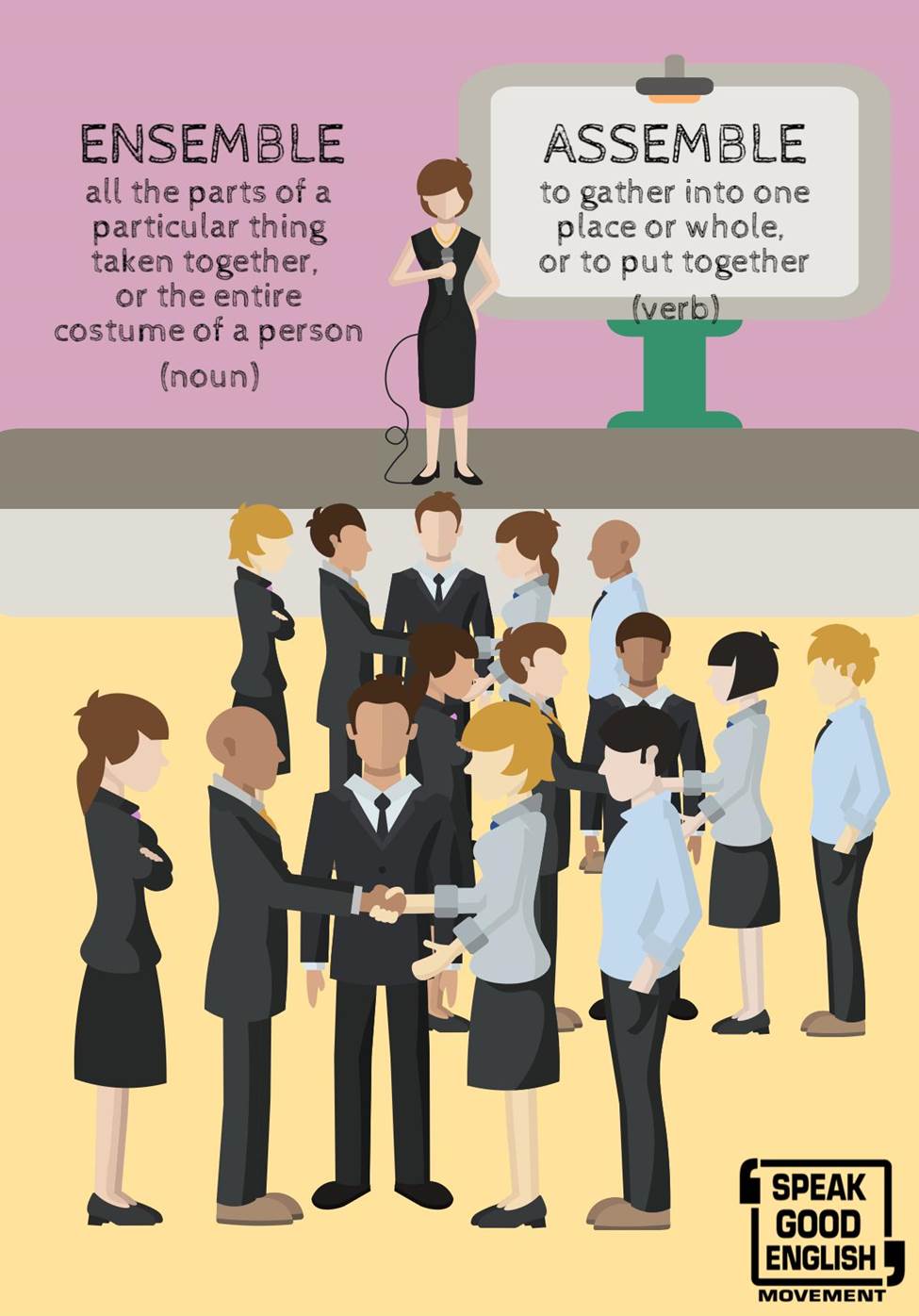
12. Attain vs. Obtain
The words “attain” and “obtain” both ultimately mean to get something, but they have different nuances in their meanings.
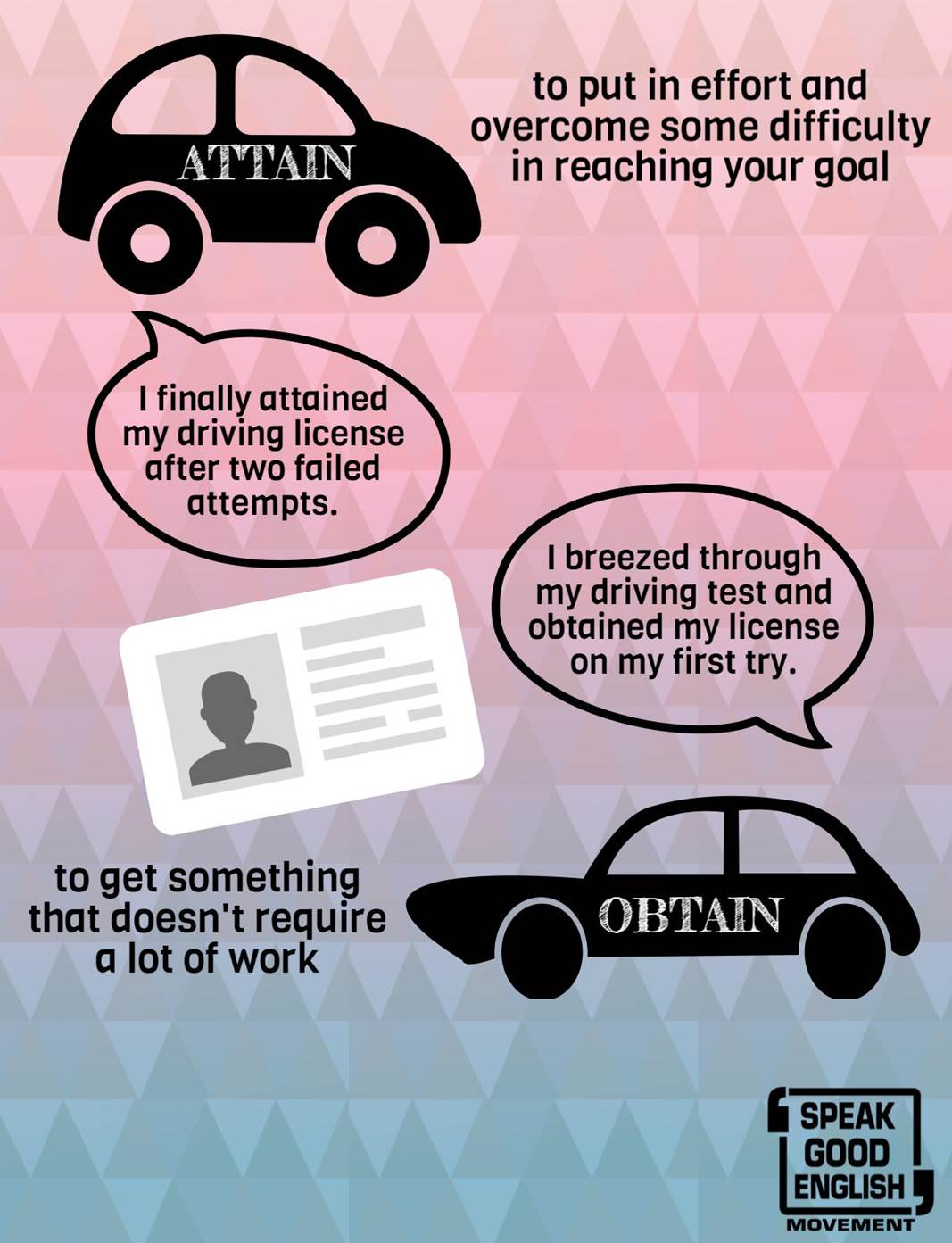
13. When do we use ‘subject to availability’ and ‘subjected to availability’?
The reason we do not use ‘subjected‘ is because ‘subject‘ is an adverb (i.e. one that describe verbs, adjectives, or even other adverbs) that means “conditional upon”. Adverbs are not modified for tenses, hence you cannot add an ‘-ed’ to the adverb ‘subject‘.
You can only do that if you are using ‘subject‘ as a verb. You might say something like “he was subjected to great danger”, or in this case “you are subjected to your teacher’s availability for consultation.”
14. What’s the difference between ‘awakened’ and ‘awoken’? Can they be used interchangeably?
Those two words tend to both be used as past participle forms. So you might say either ‘have awoken‘ or ‘have awakened‘.
‘She’ is a pronoun – a word used in place of a noun or another pronoun. Their main purpose is to help avoid unnecessary repetition in your writing and speech. Since ‘she’ is a singular pronoun, the verb that follows ought to follow the same rule.
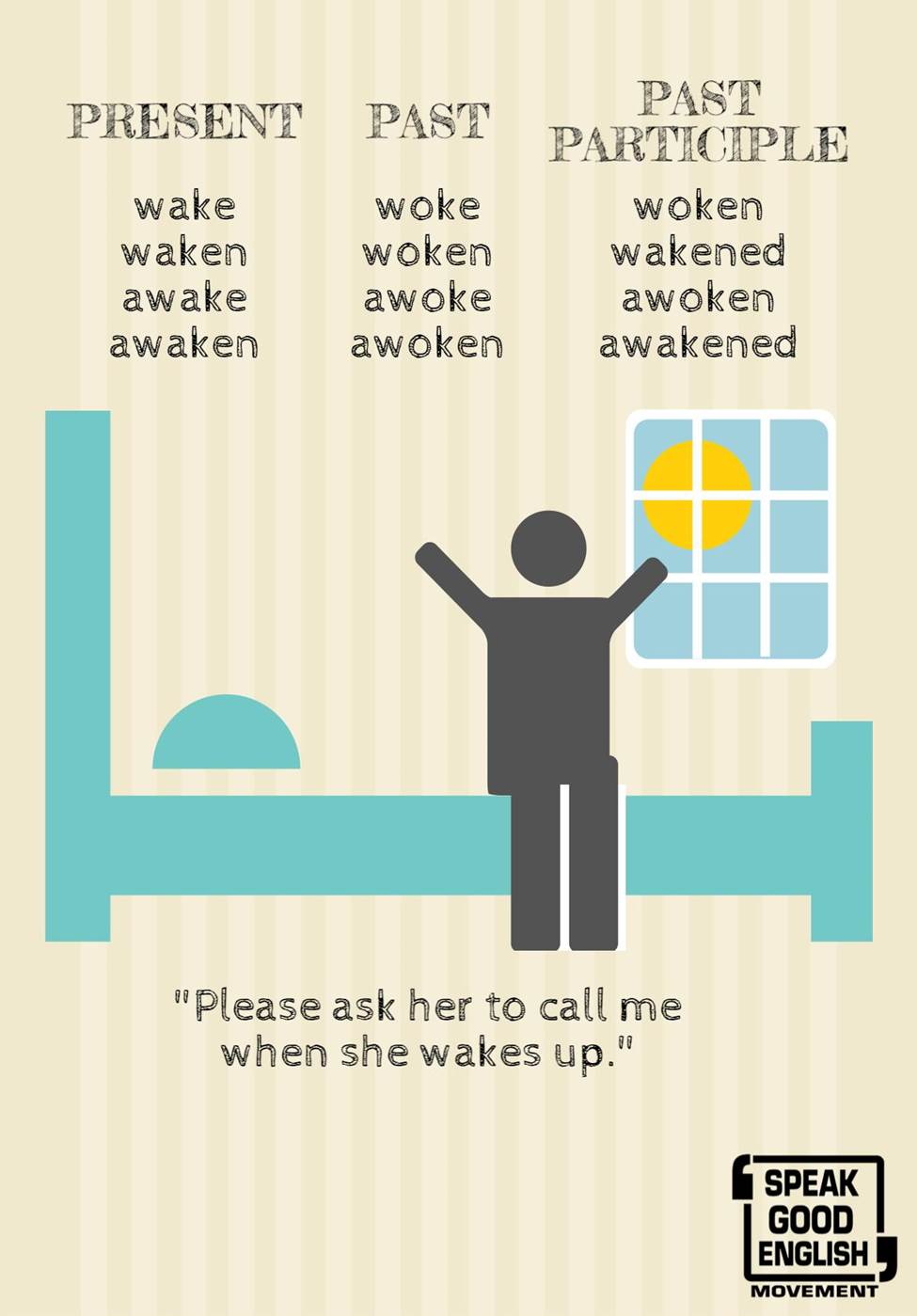
15. What is the difference between ‘pretty’ and ‘beautiful’? When we do use ‘pretty‘ and when do we use ‘beautiful‘?
This can be an incredibly subjective question so let’s just stick to the dictionary definitions.
If you look in the dictionary, you will find that ‘pretty‘ is an adjective that refers to things that are aesthetically pleasing or attractive. And ‘beautiful‘ is an adjective that refers to things that have qualities that give great pleasure or satisfaction, or that are excellent of its kind.
16. Put to Sleep vs. Put to Bed
Your friend has to leave the dinner party early because she has to “put her children to sleep”. That’s quite different from the intended meaning and it would be rather awkward being misunderstood in this situation!
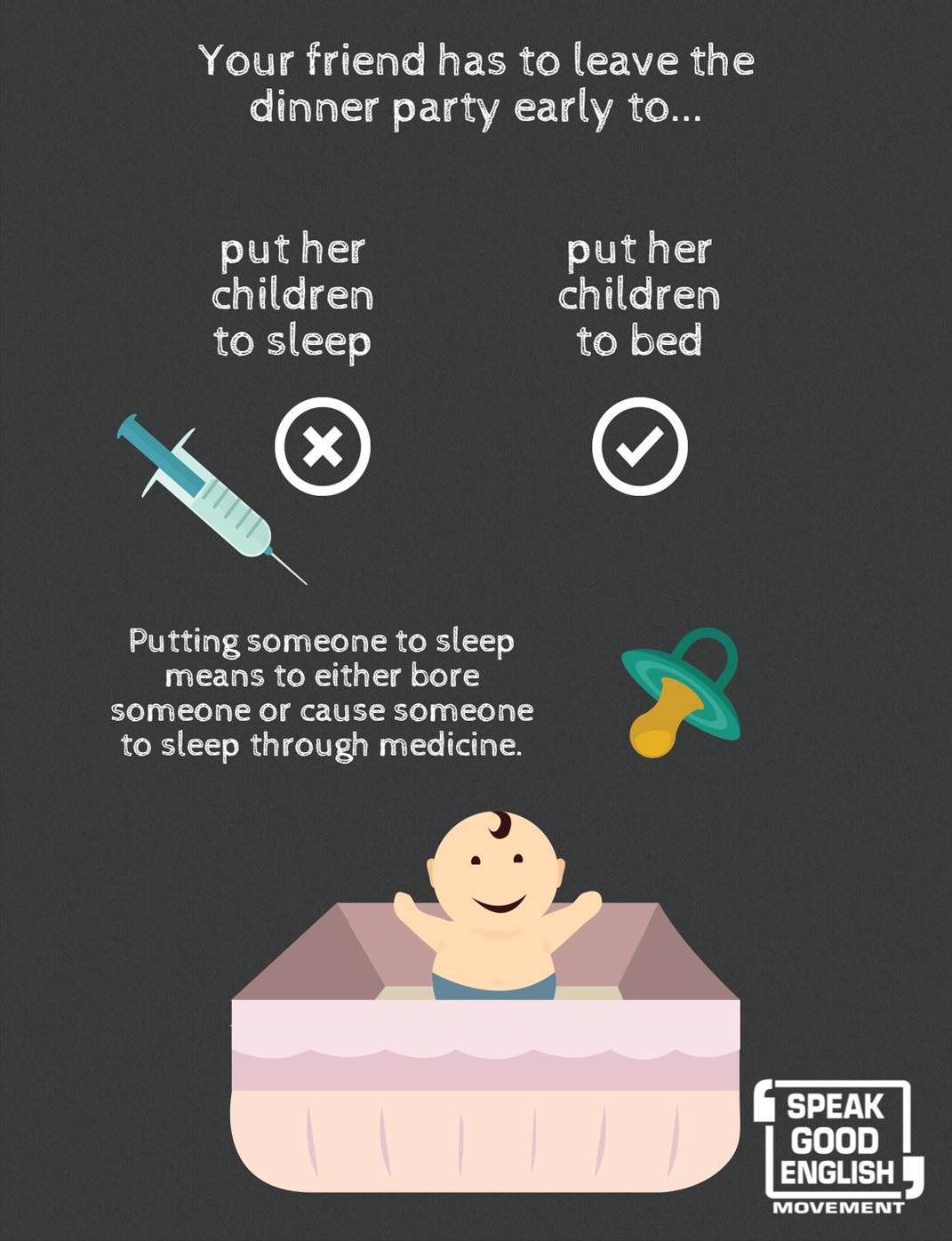
17. Do I say “I took breakfast” or “I had breakfast”?
When you’re talking about meals, you should use "had". "Took" is used in the context of eating when you’re talking about medicine.
Therefore, you should say "I had breakfast".
18. What is the difference between ‘catched’ and ‘caught’? Are they both the past tense of ‘catch‘?
‘Catched‘ is often mistaken as the past tense of ‘catch‘. This is a mistake!
The past tense form of ‘catch‘ is ‘caught‘, as in “I caught the ball”.
19. What is the difference between ‘chord’ and ‘cord’?
Both words are nouns, but have different meanings.
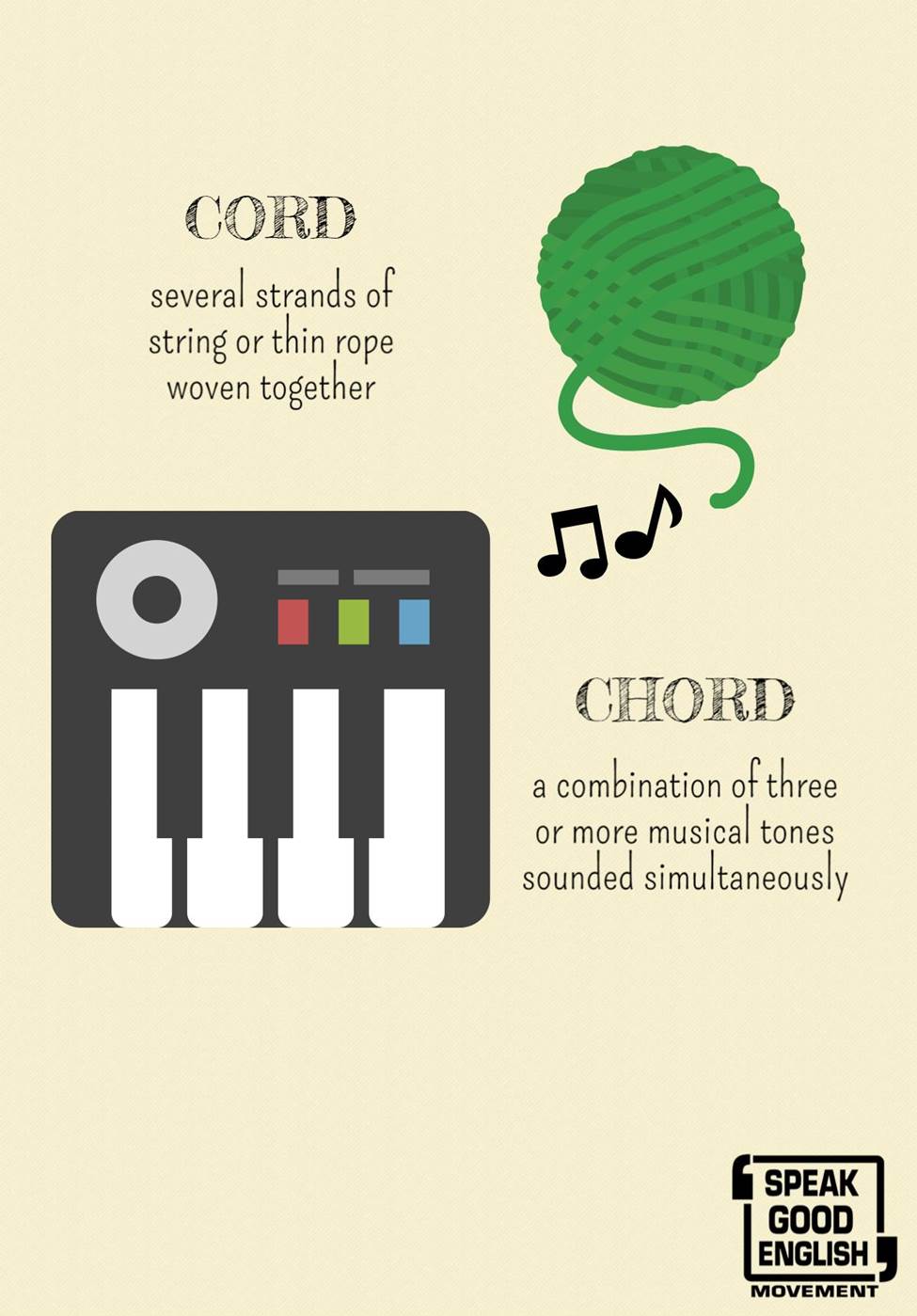
20. What is the difference between ‘coarse’ and ‘course’?
‘Coarse‘ is an adjective (a word to describe another item), and ‘course‘ is a noun (the name of an item).
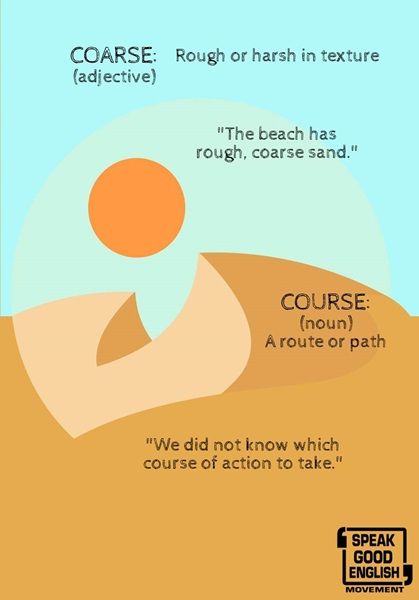
21. What is the difference between ‘complement’ and ‘compliment’?
While both are verbs and have positive meanings, ‘complement‘ is something that completes or makes another perfect. For example, “that dress really complements her shoes”. ‘Compliment‘, on the other hand, would be an expression of praise, commendation, or admiration. For example, “Joe complimented Susan on her pretty dress”.
Why not make someone’s day by giving them a compliment?
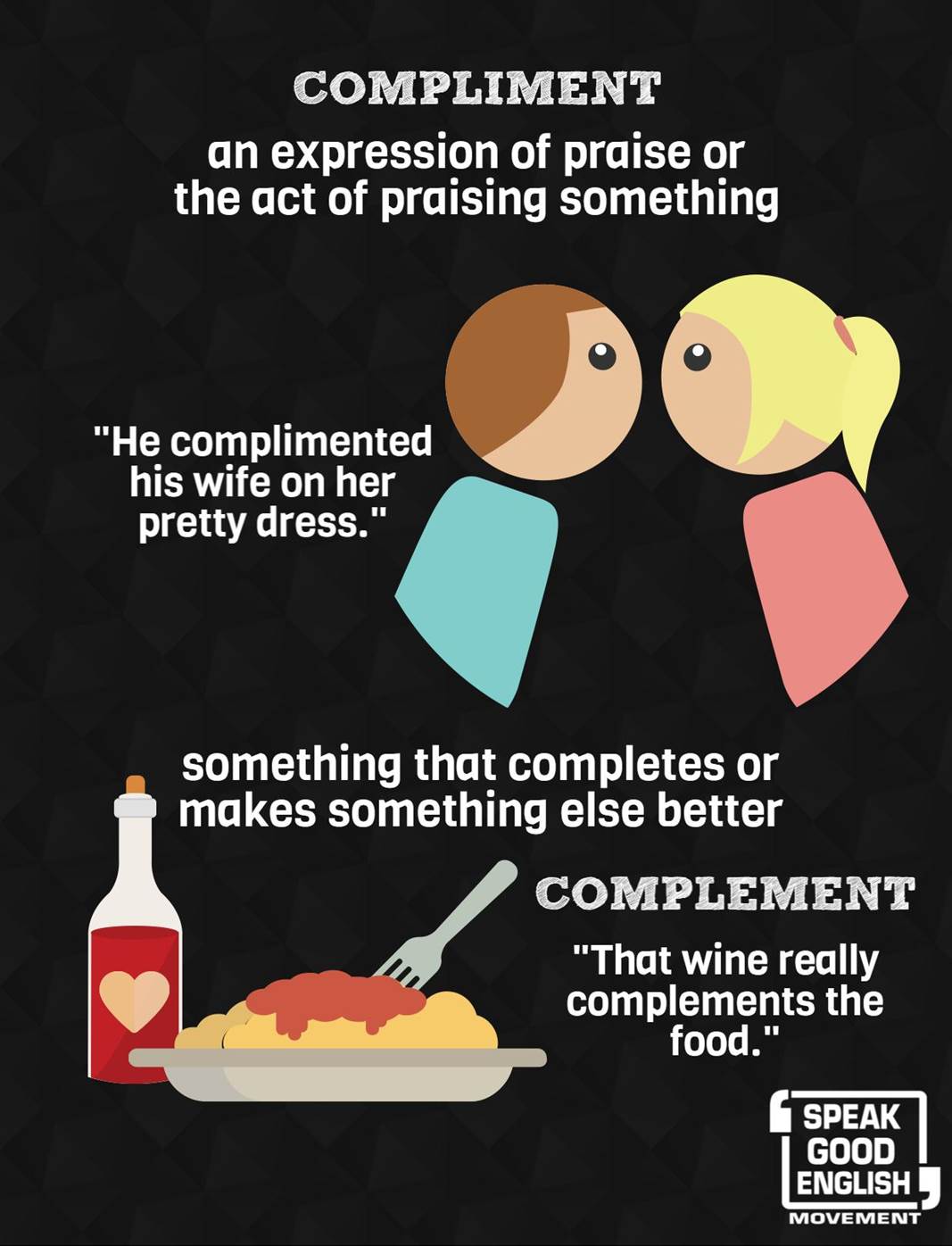
22. Condemn vs. Condone
Did the principal condemn or condone the students for misbehaving?
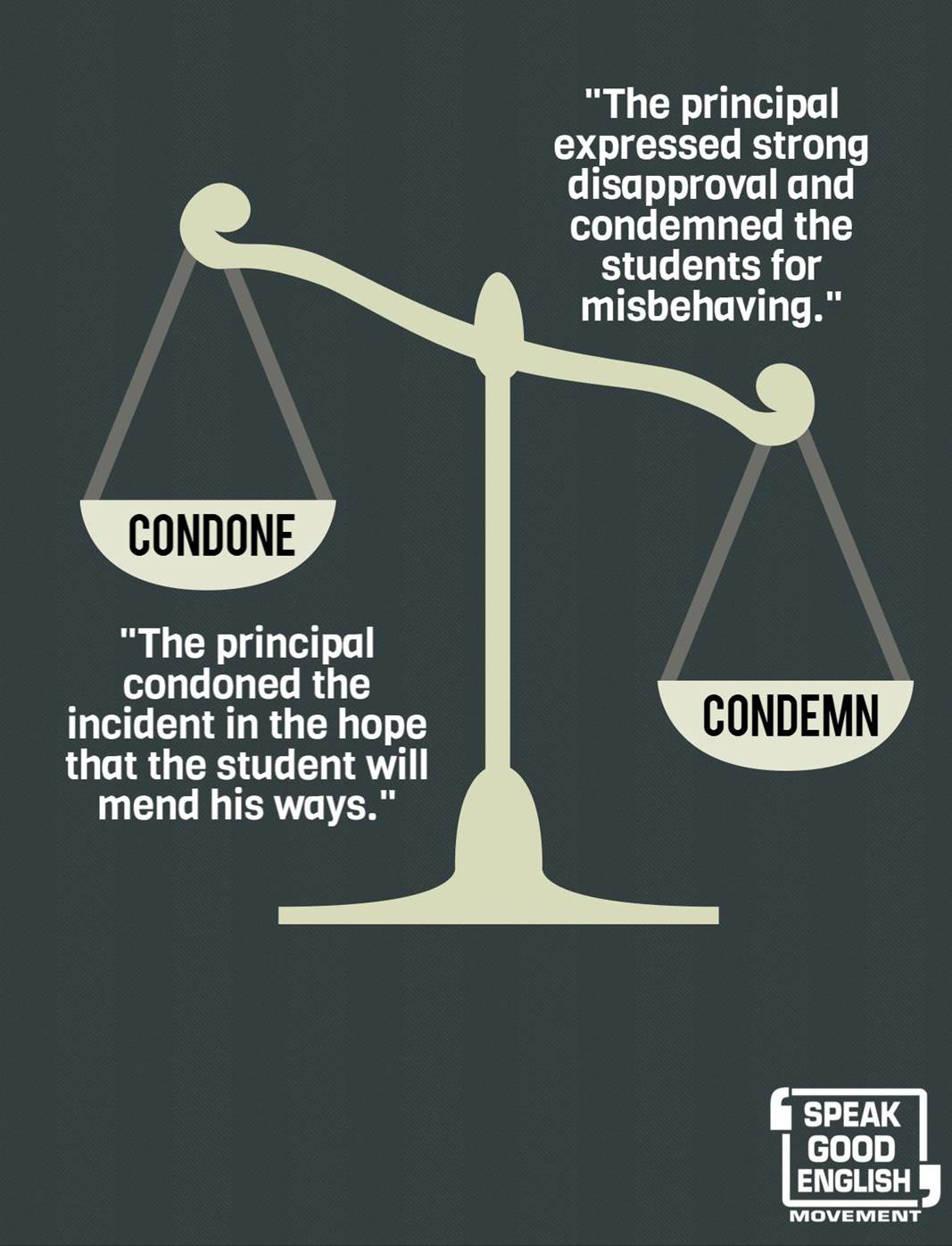
23. Could vs. Would
When do you use "could" or "would"?
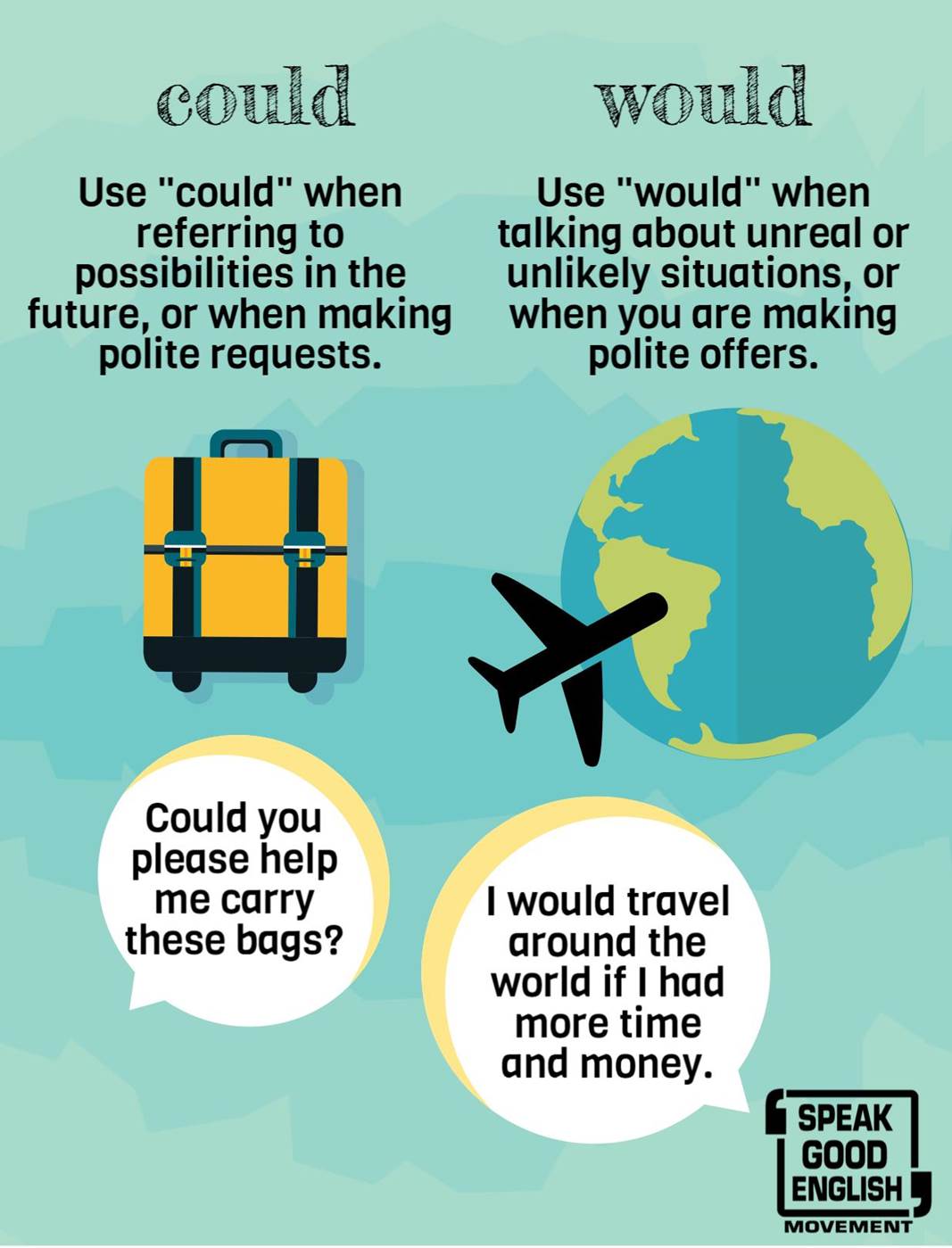
24. What is the difference between ‘council’ and ‘counsel’?
These words are often thought to mean the same thing, but on the contrary, they don’t! “Council” is a noun, while “counsel” is usually used as a verb, for example: “he counselled the patient”.
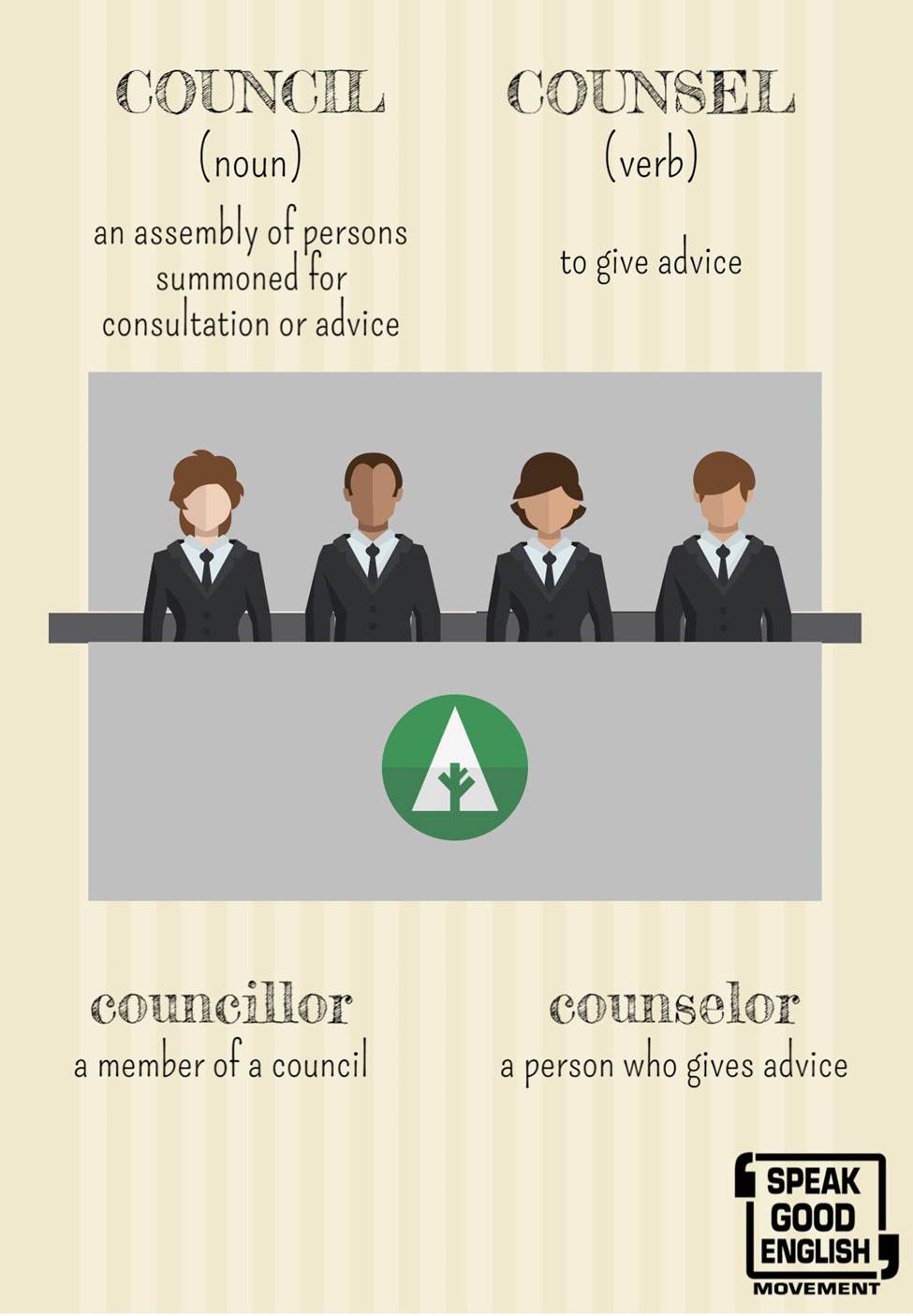
25. Day off vs. Off day
If you’re taking leave from work, remember to tell your colleagues that it’s your “day off” and not your “off day”. “Mary was late for work because the bus broke down and now her computer refuses to work. I guess she’s just having one of those off days.” You would be a lot happier having a “day off”. We hope you get to take a break and enjoy a day off soon!
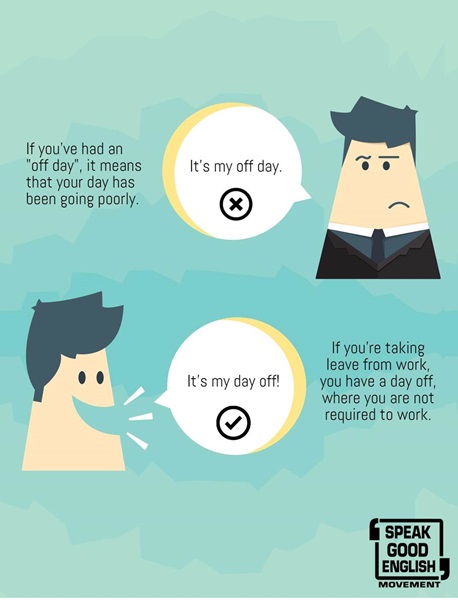
26. Despite vs. In spite of
“In spite of” and “despite” mean the same thing and can be interchangeably used in your sentences. Although you can choose which word to use, take note not to merge them into one phrase as “in despite of” is incorrect.
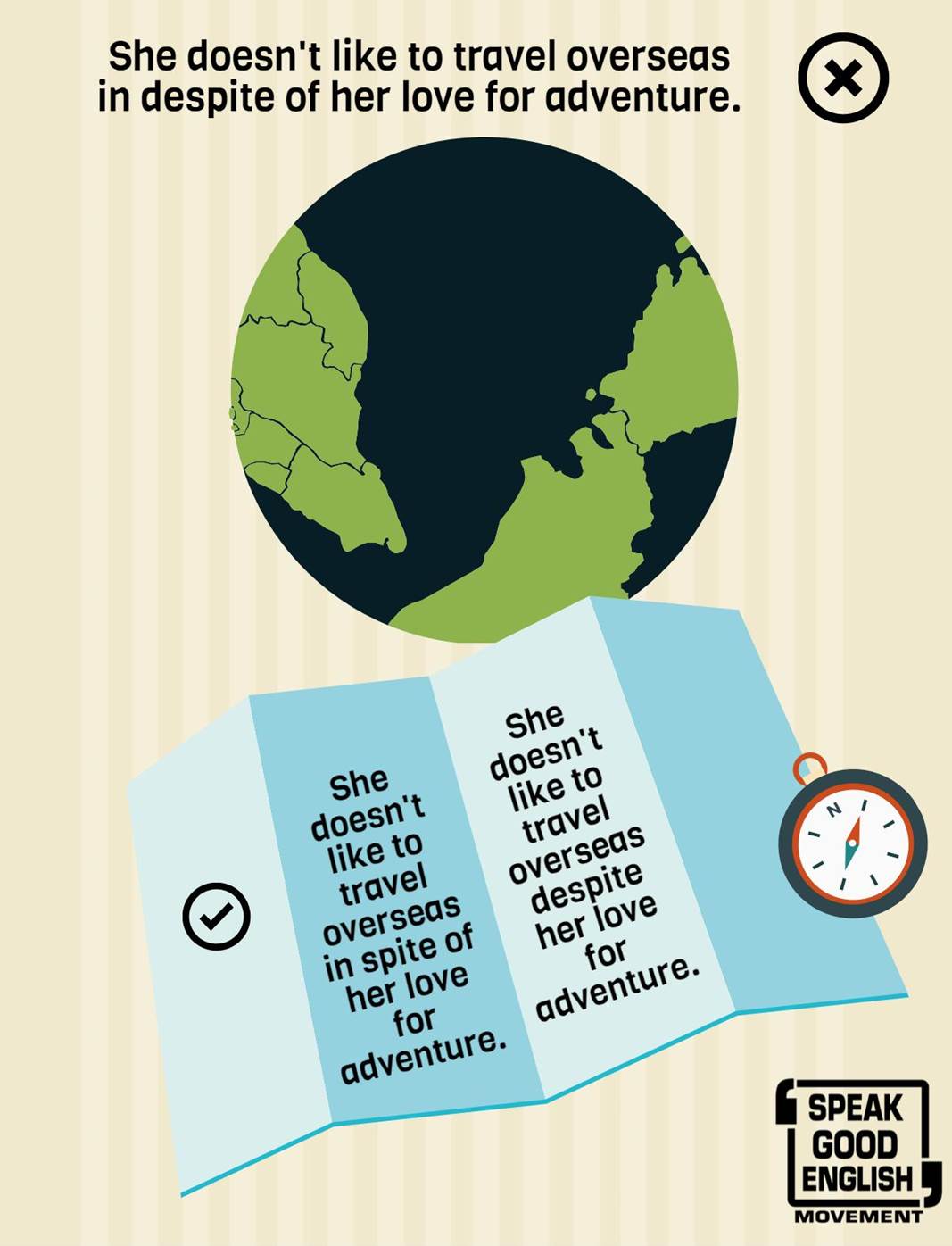
27. Disinterested vs. Uninterested
It has been observed that many young people these days are apathetic. Does this mean they are disinterested or uninterested in politics?
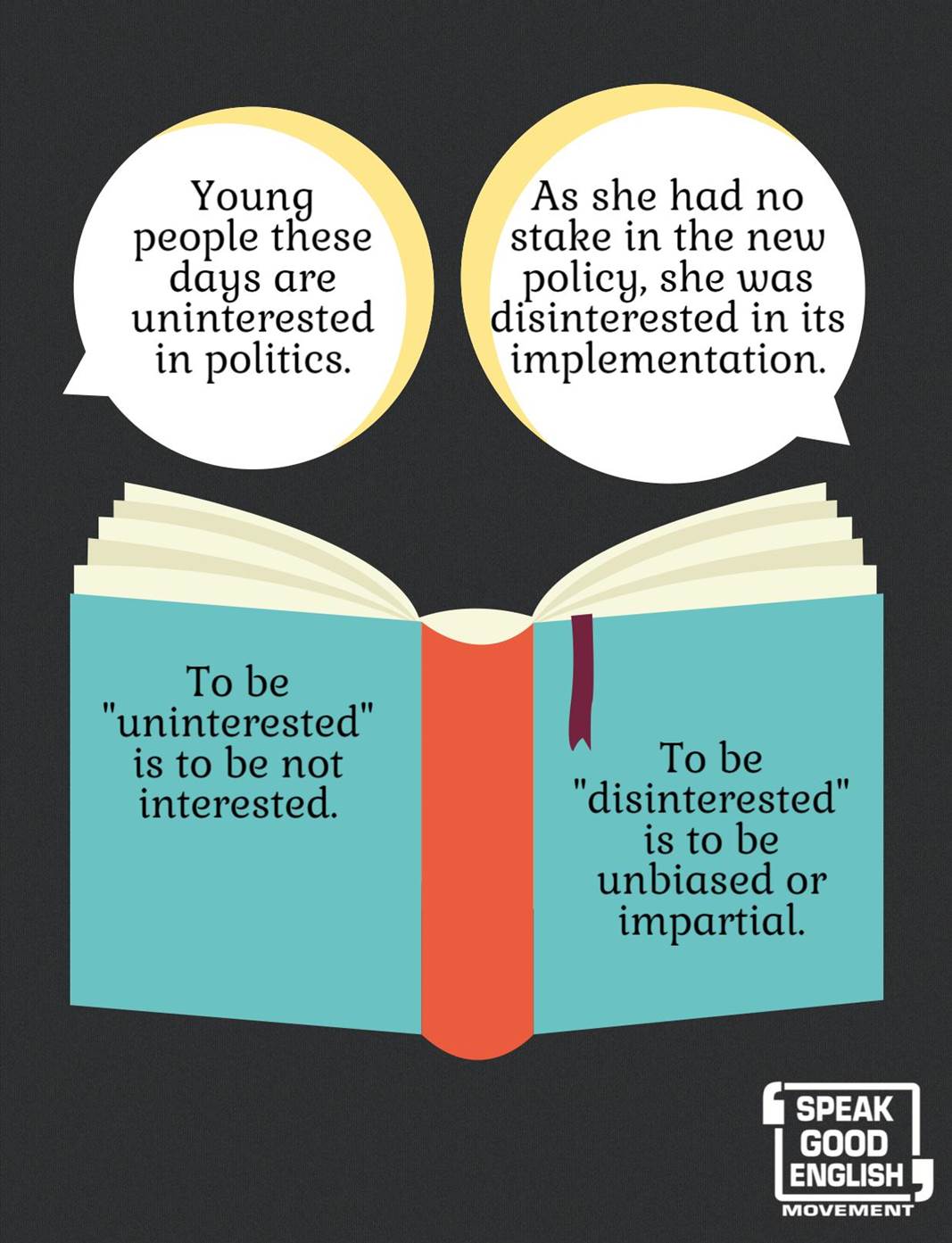
28. What is the difference between 'drank', 'drunk', and 'drunken'?
These words have the same meaning, but are used in different ways. As a rule of thumb, we always put ‘has’ or ‘had’ before using ‘drunk‘. For example, “John has drunk that cup of water”. To make things simpler, we usually just use the past tense of drink – drank.
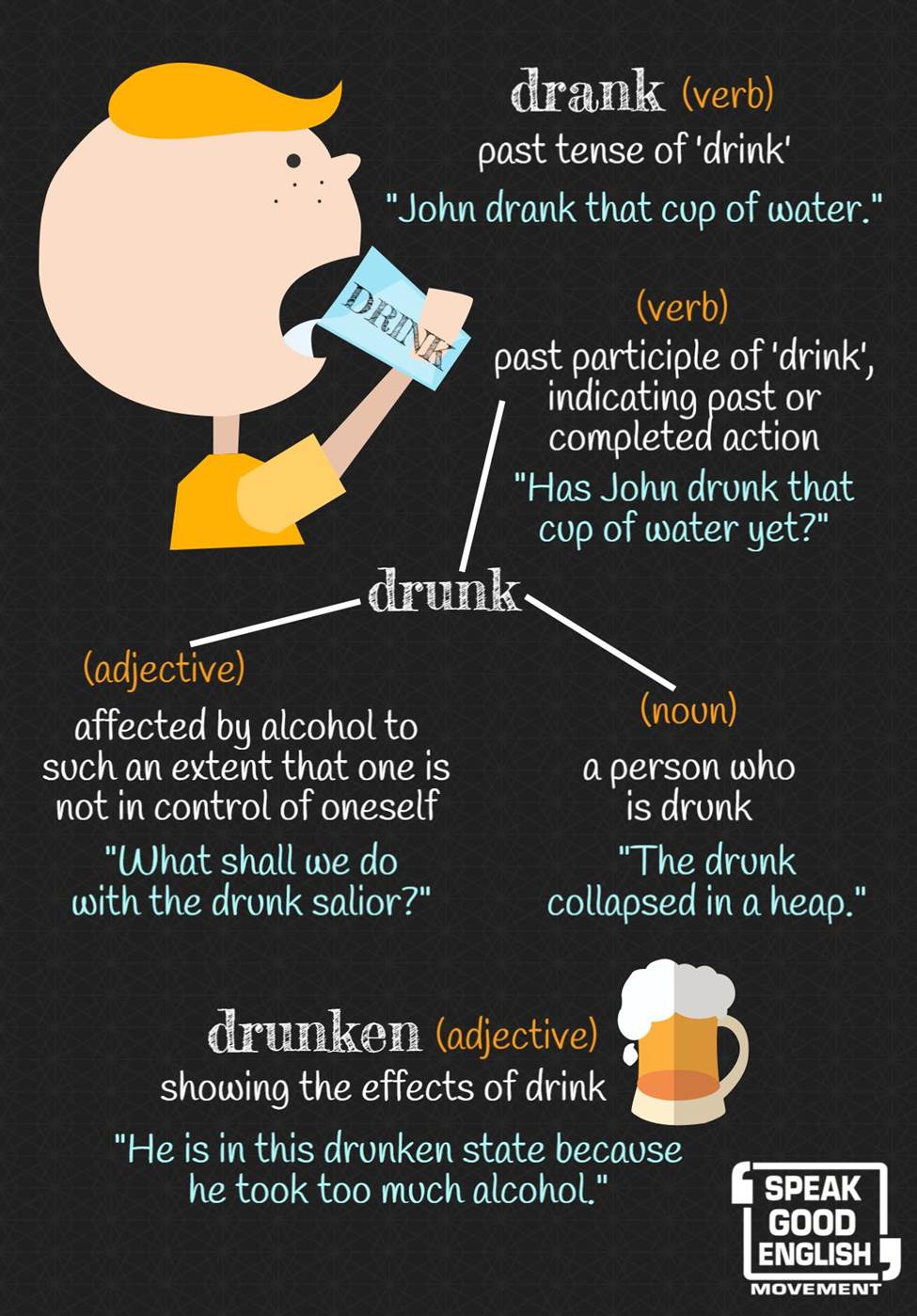
29. e.g. vs. i.e.
The abbreviations “e.g.” and “i.e.” are often used interchangeably. However, their uses are very different! When writing formally, it’s better to express their full meanings rather than use these abbreviations as they may be viewed as informal.
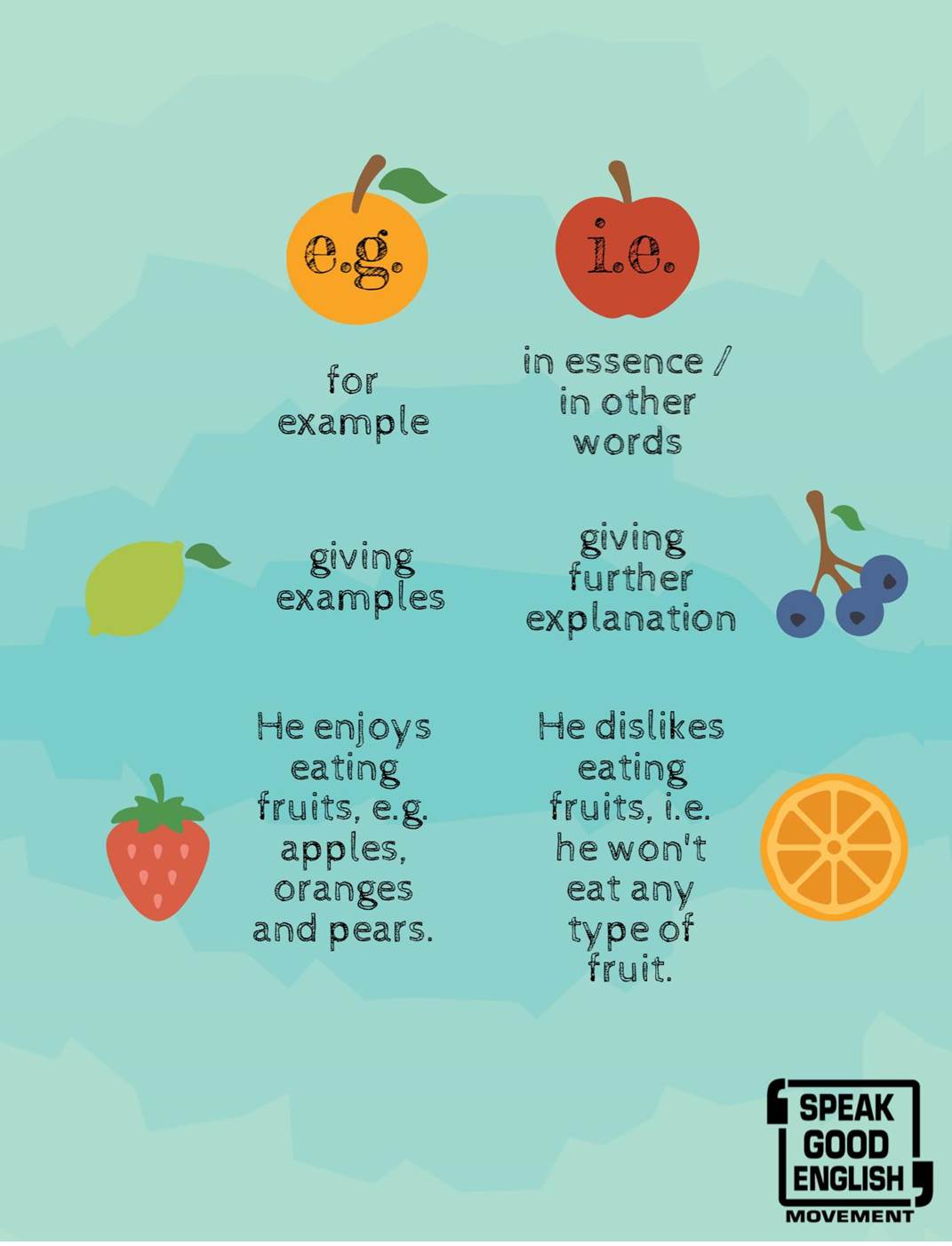
30. Specially vs. Especially
Walking past the candy store, your friend exclaims, “I love chocolates, specially the ones with nuts inside.” What your friend meant to say was that she “especially” enjoys eating chocolates that have an added crunch of nuts. She is especially fond of a particular type of chocolate.
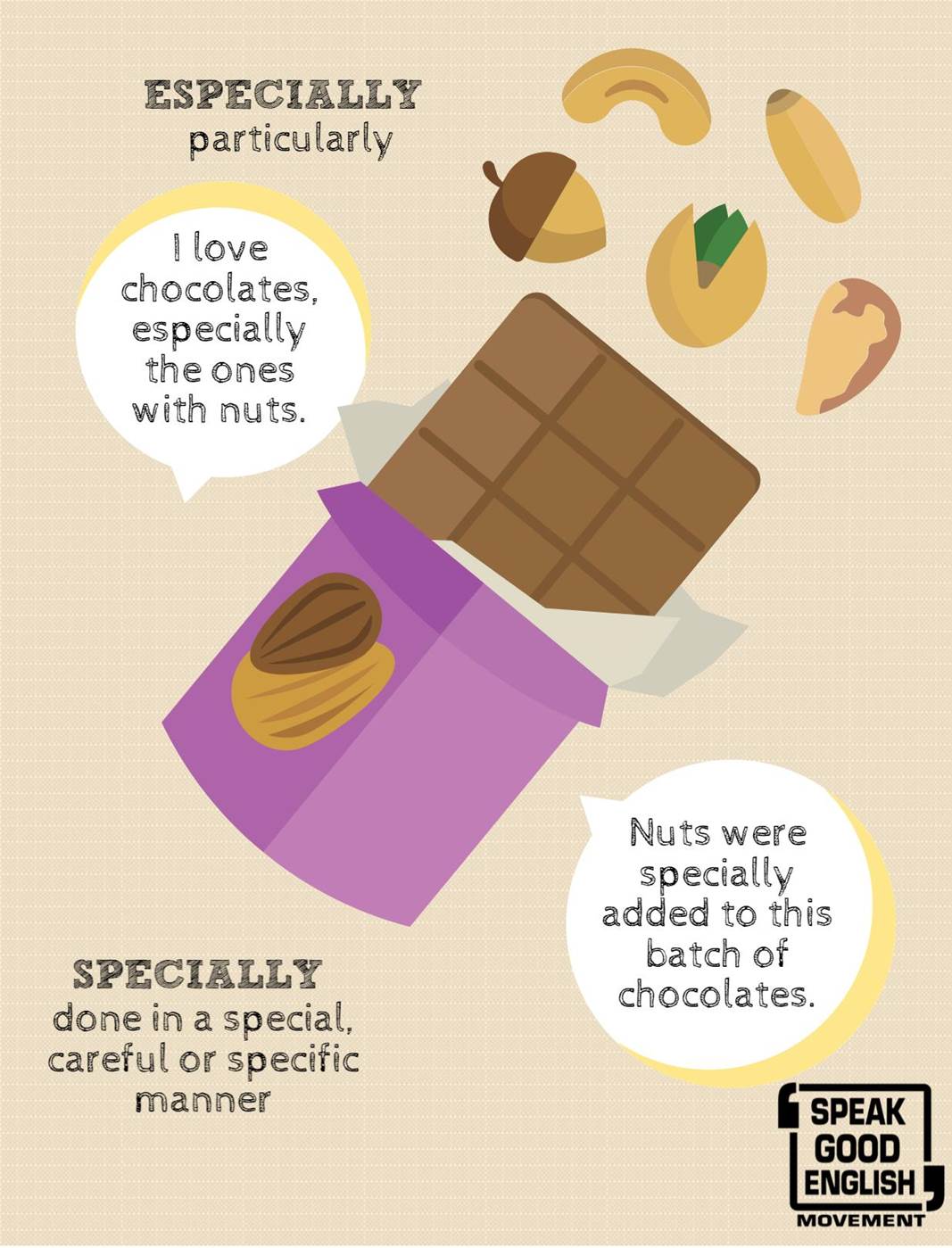
31. Implicit vs. Explicit
Is it easier to understand something that is implicit or explicit?
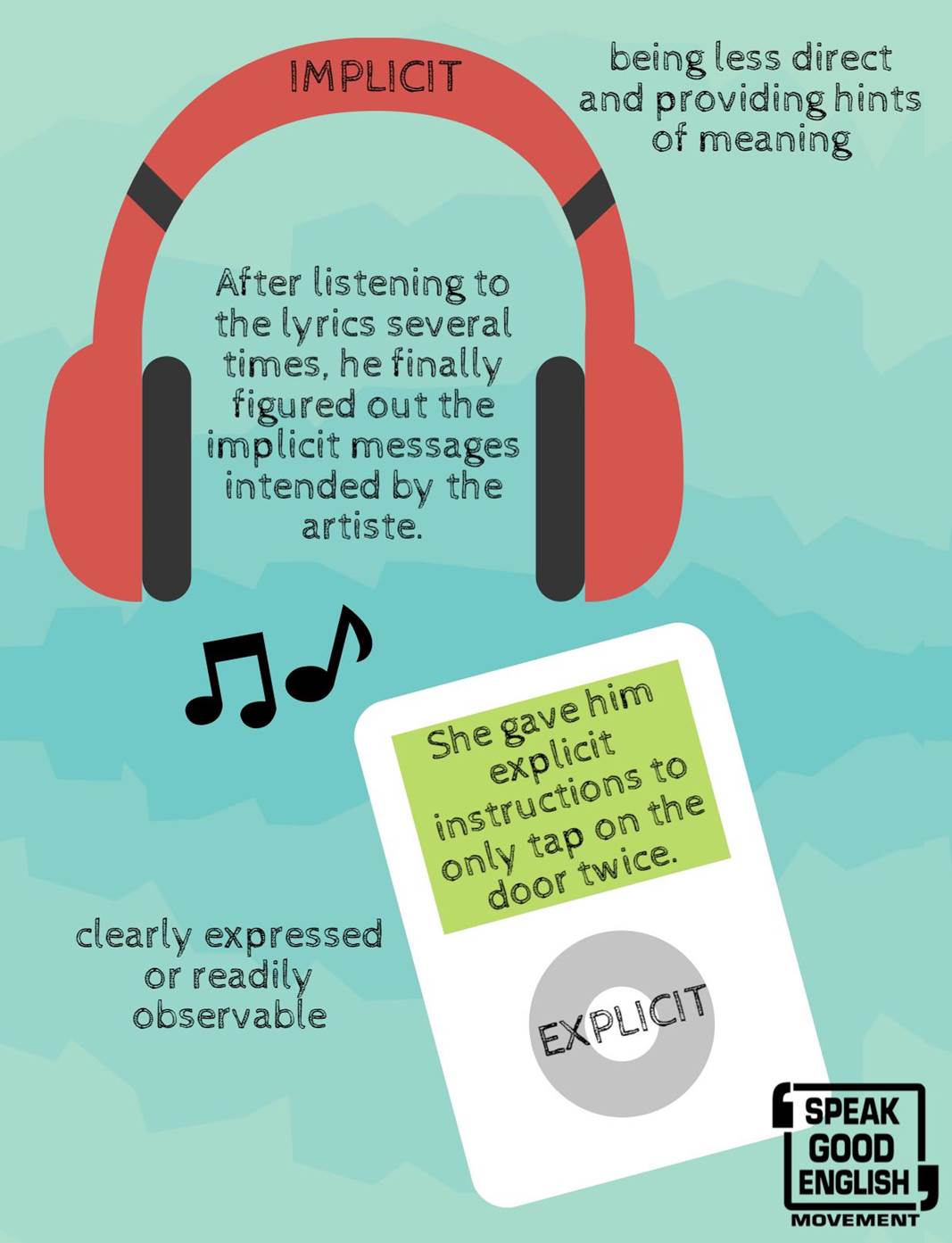
32. Extra vs. Surplus
“We’re lucky to be able to return the extra stock.” Have you ever overheard this being said when you’re out shopping?
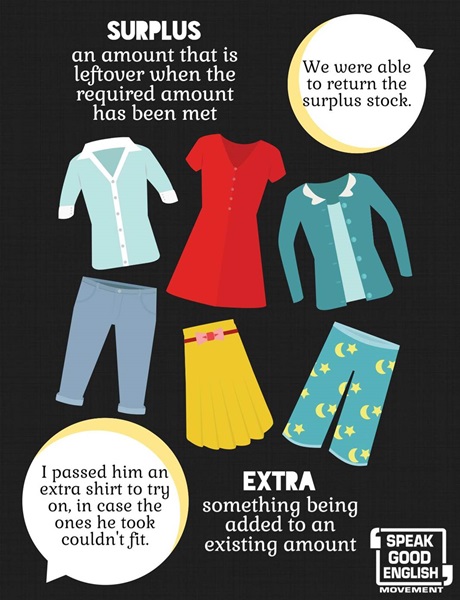
33. Farther vs. Further
While both words refer to distances, farther and further are used in different situations. Remember, when you’re talking about a “far” distance, use the word “FARther”. Everything else would be “further”.
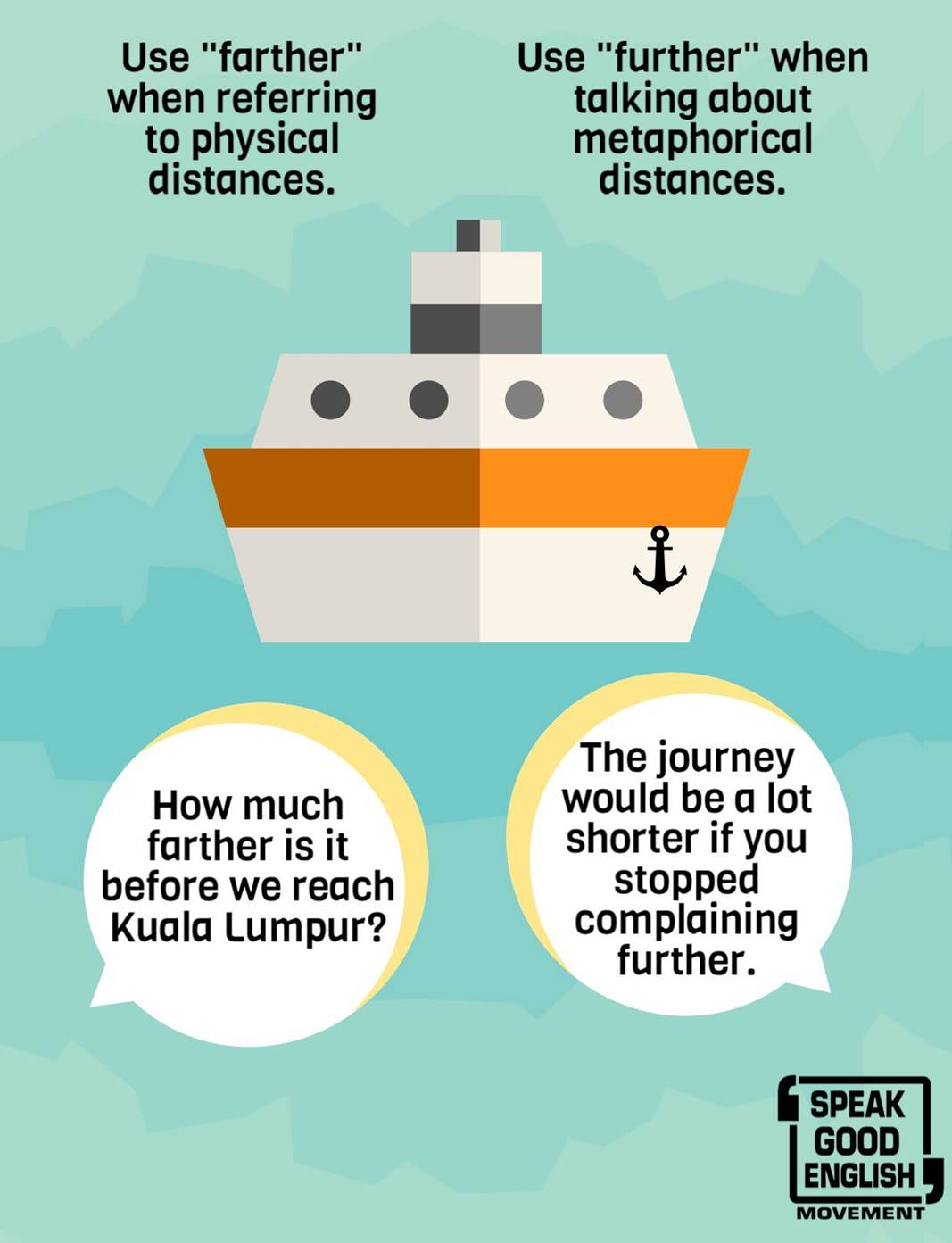
34. Fill up vs. Fill in
Someone approaches you at the MRT station and asks if you could help him to “fill up” a quick survey form. What’s the better way to say it?
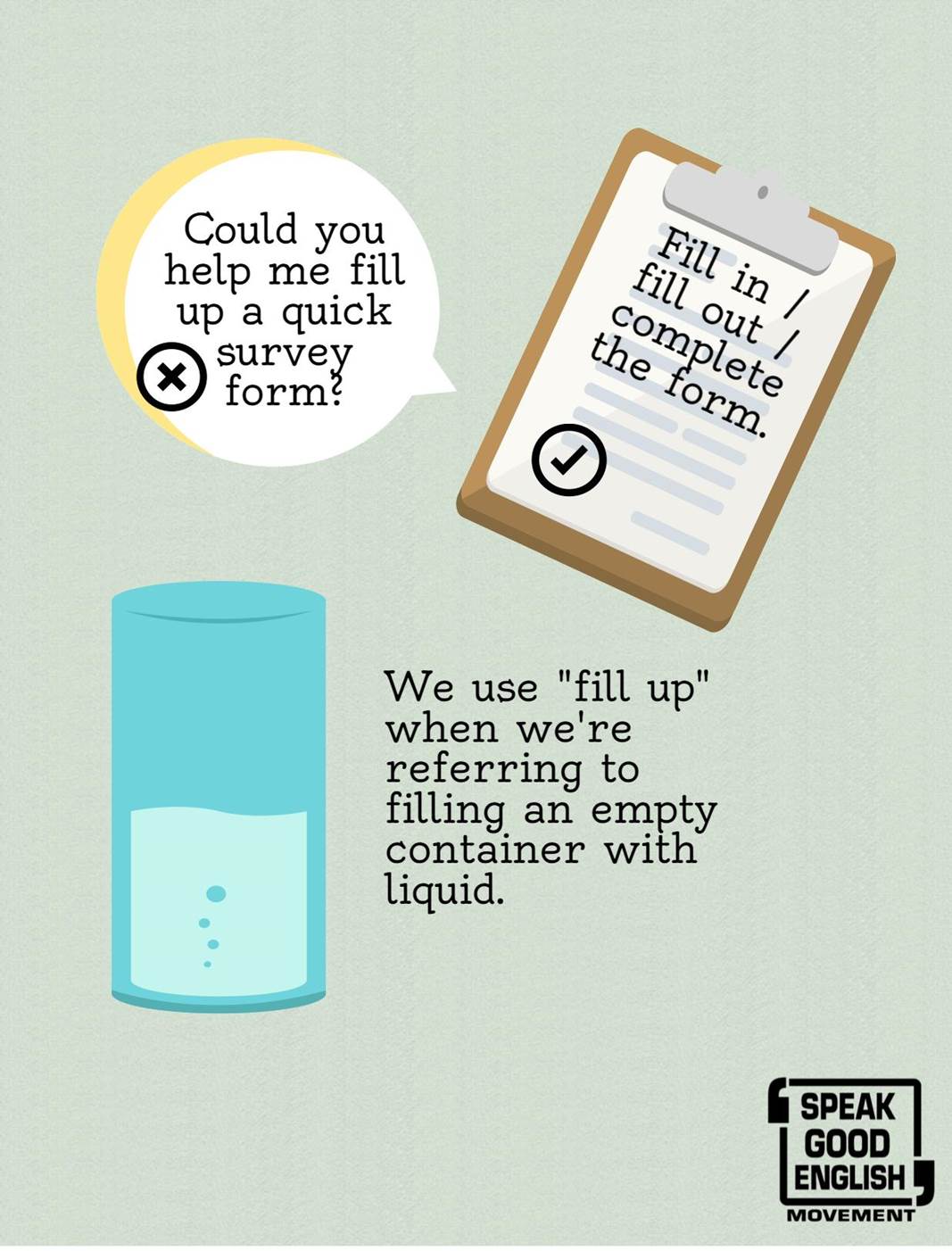
35. Flaunt vs. Flout
Do we say the rich man was always “flaunting” or “flouting” his wealth? Although these two words sound very similar, they don’t have the same meaning. When you flaunt, it means that you are showing off something. It usually also implies that you’re doing it to evoke a reaction from your intended audience. When you flout, it means that you are openly disobeying, going against, scorning or rebelling against something, usually rules, codes or laws.

36. On sale vs. For sale
“Sale” is a word that excites many Singaporeans, but do you know when to use the phrase “for sale” or “on sale”? We hope you score some good deals during the Great Singapore Sale!

37. Former vs. Latter
How should you use these terms correctly? Remember, use these terms only when distinguishing between two choices.
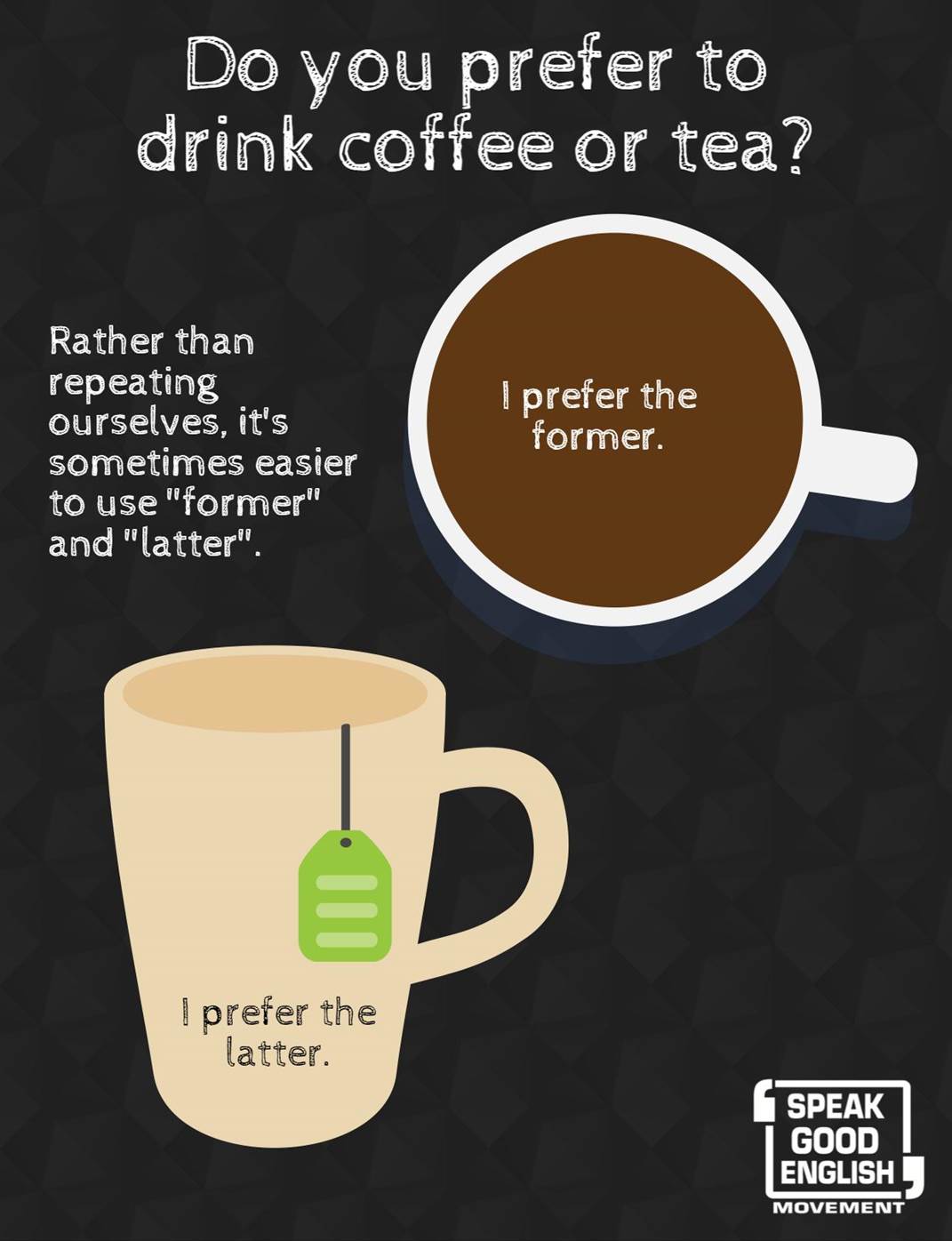
38. What is the difference between ‘fowl’ and ‘foul’?
A ‘fowl‘ is a domestic hen or rooster.
‘Foul‘ can be used as a noun, particularly in sports where a violation of the rules results in a foul.
It can also be used as an adjective to describe something particularly unpleasant like a foul stench or a foul mood.
39. What is the difference between ‘friendlily’ and ‘friendly’? When do we use 'friendlily' instead of 'friendly'?
‘Friendlily‘ is not a commonly used word. However, it is an adverb so you use it like an adverb.
Adverbs are modifiers. They typically answer the questions such as how?, in what way?, when?, where?, and to what extent?
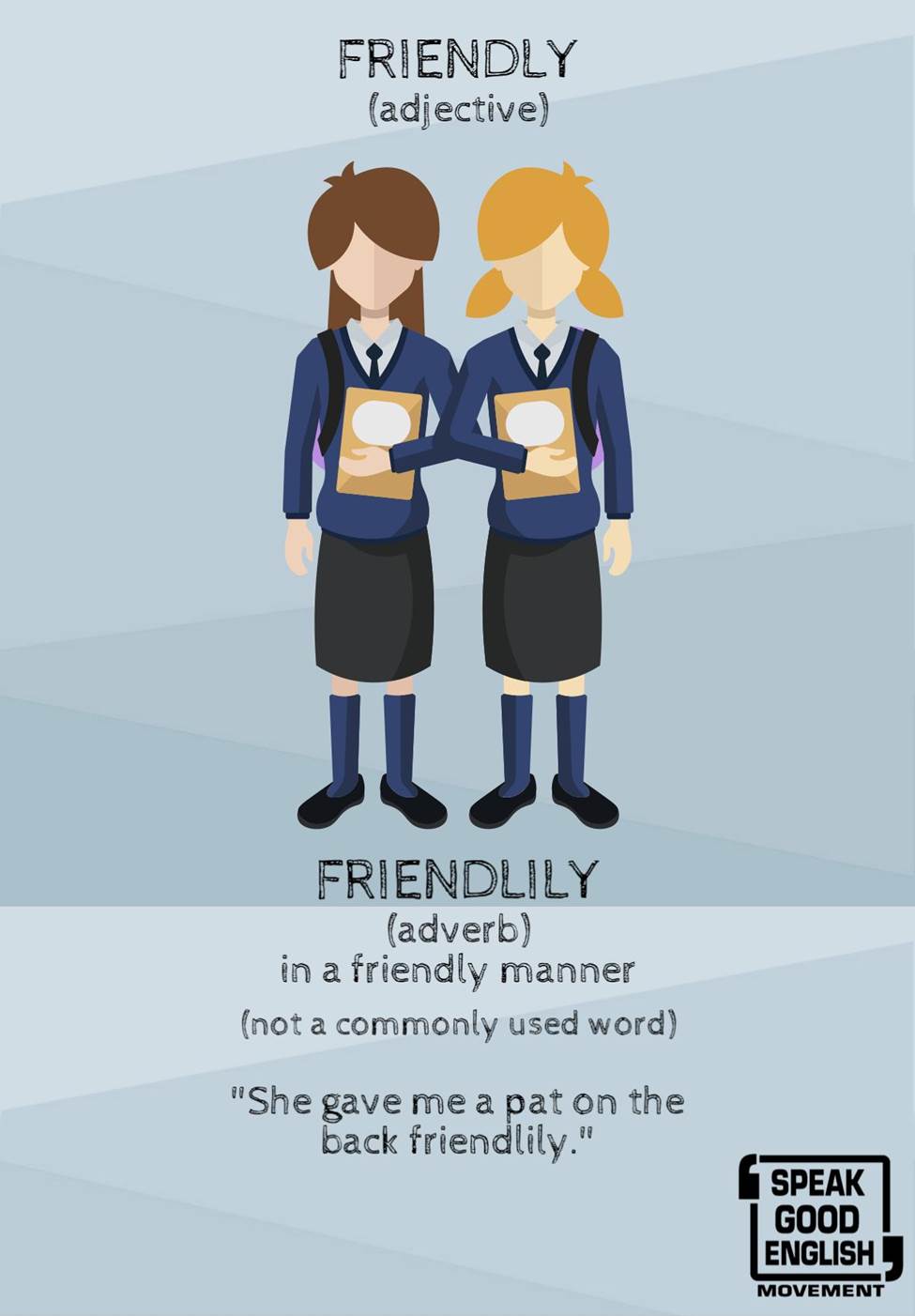
40. Gone vs. Went
Although both words indicate movement, “gone” and “went” have their own grammatical usage. Here’s an extra tip on using the word “gone”: It must always be preceded by an auxiliary verb such as has, have, had, is, am, are, was, were and be.
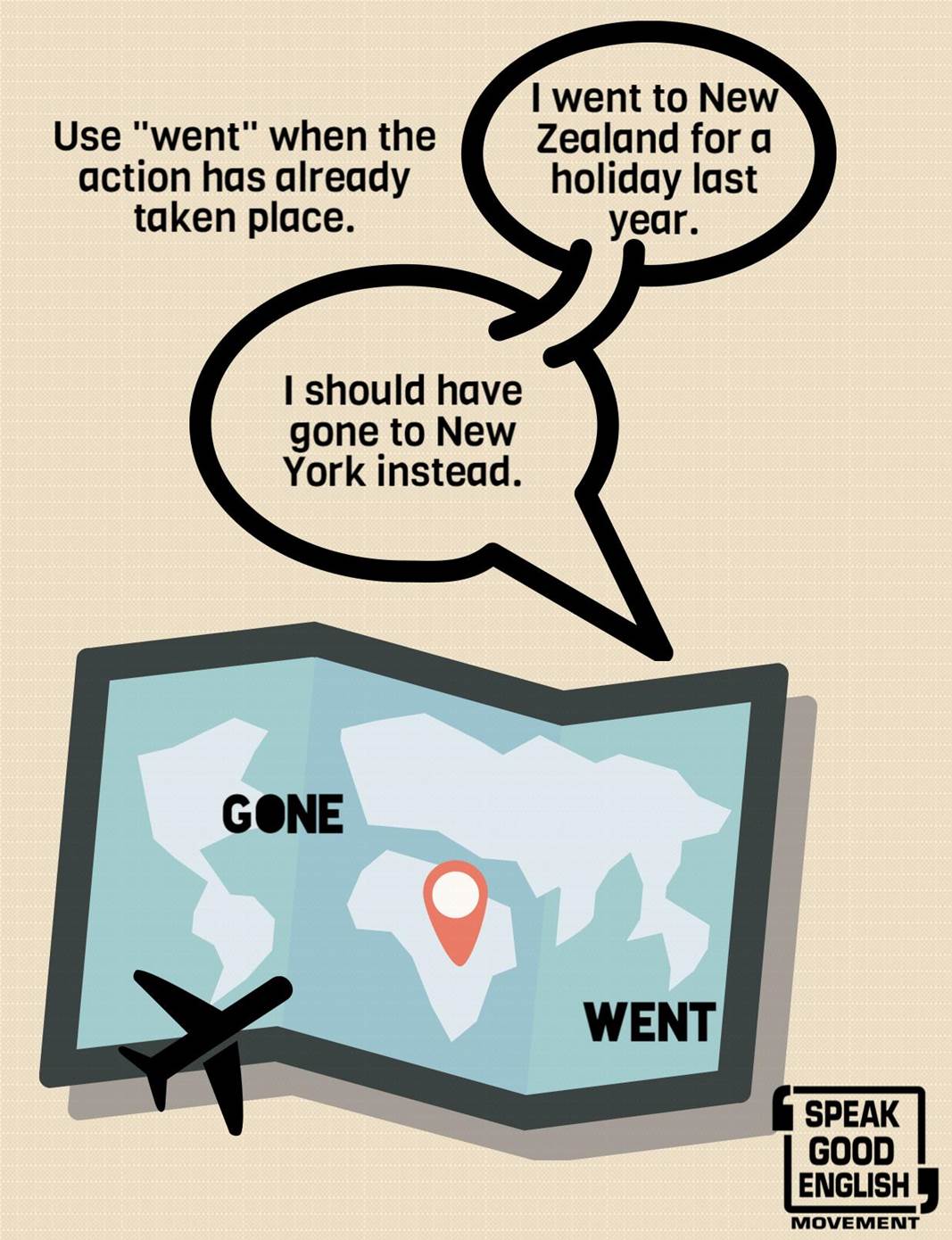
41. High vs. Tall
Overheard on the MRT, “BMT is tougher than I thought. The wall was too tall for me to get over!” We often use the words “tall” and “high” interchangeably, but there are subtle differences in their meanings.
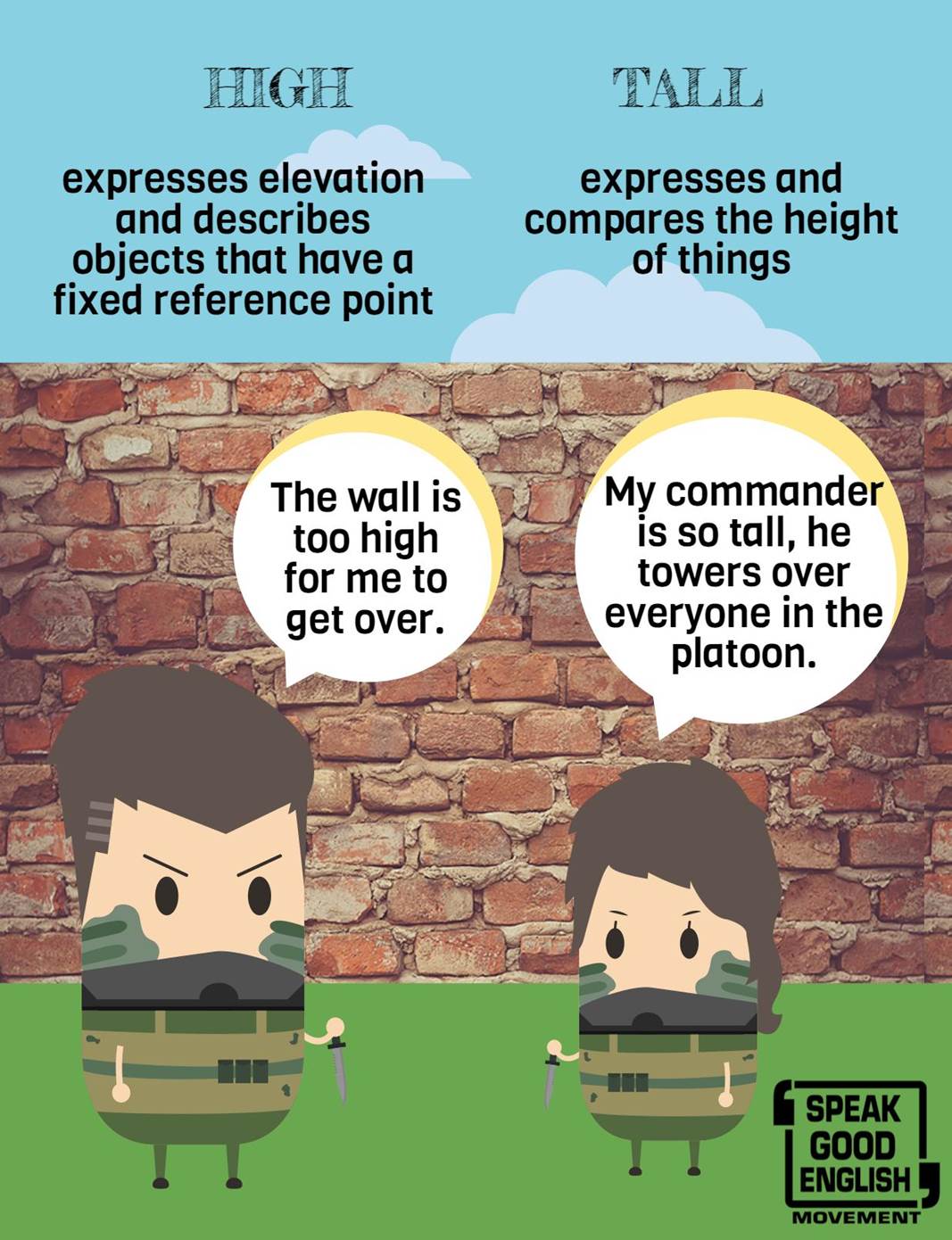
42. Hope vs. Wish
Some dictionaries may have the same meaning for both of these words but there are some subtle differences and connotations between these two words.
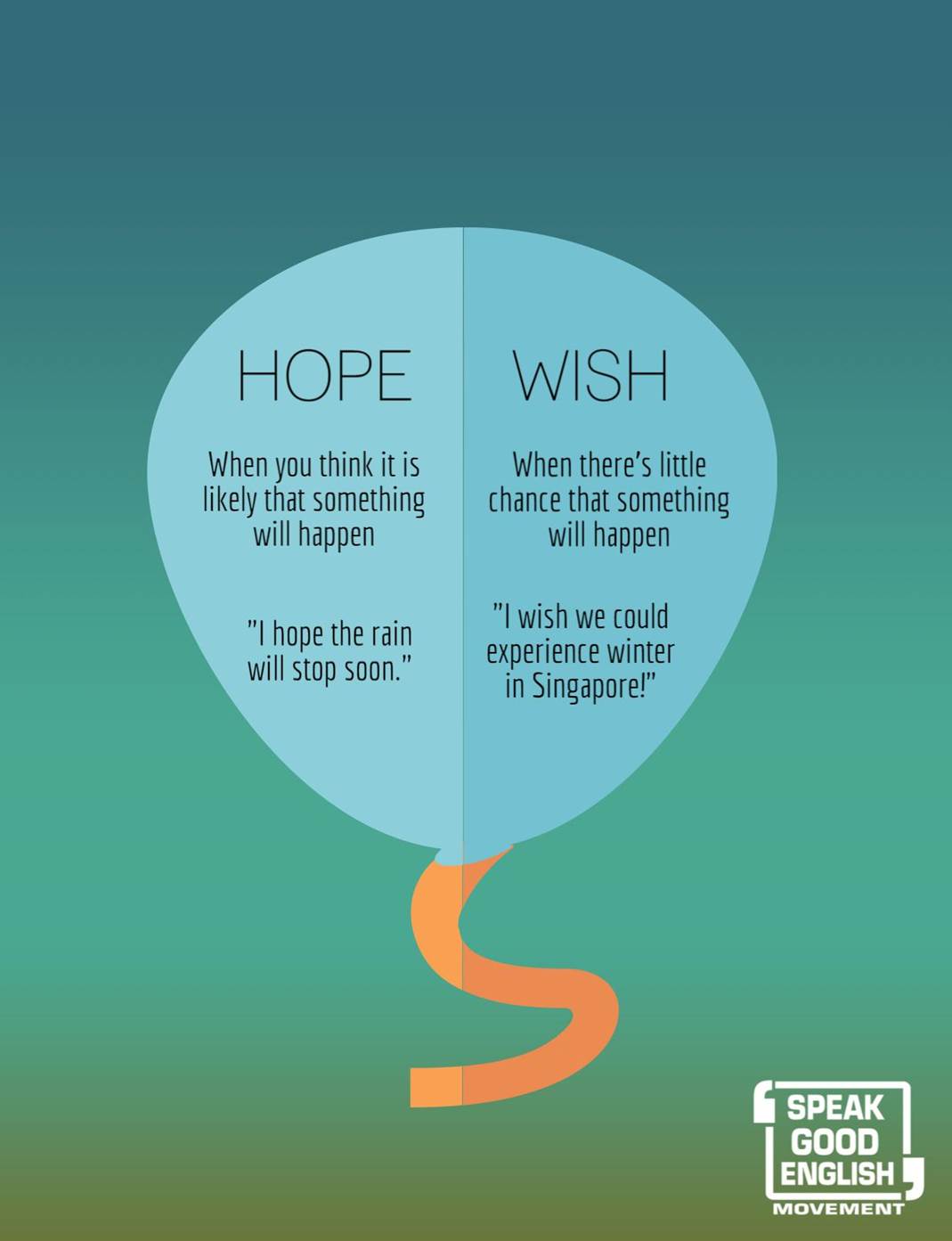
43. Upgrade vs. Improve
There’s no doubt that our Little Red Dot is constantly upgrading. However, when referring to its people, the correct word to use is “improving”. On the other hand, we would say we upgraded a computer, upgraded a mobile phone or upgraded from an economy class seat to a business class seat.
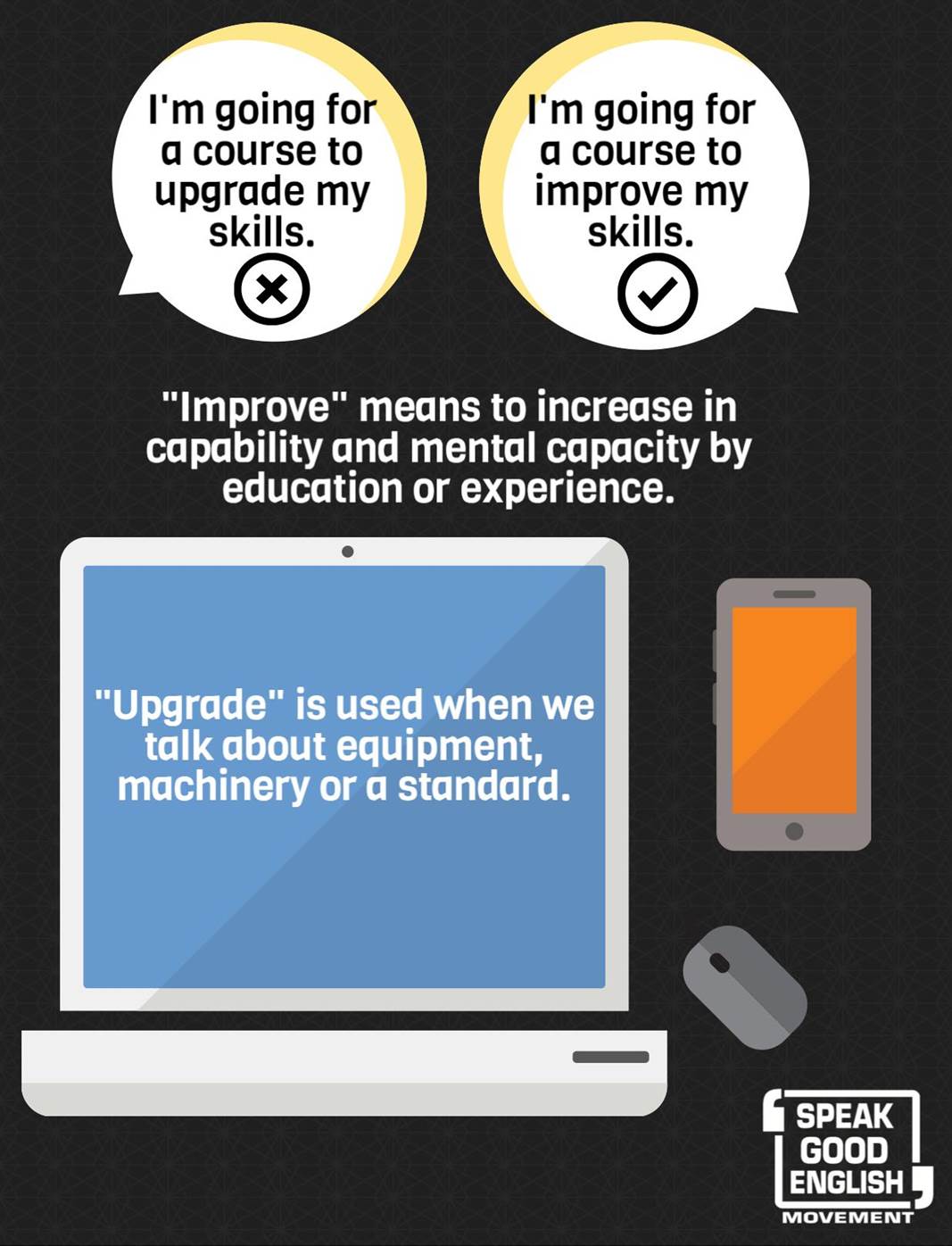
44. What is the difference between ‘just in time’ and ‘just on time’?
The phrase you want to use is ‘just in time‘. ‘On time‘ is usually used on its own, without a ‘just’. Hence, the right sentence should be “The lift door opened just in time“.

45. Valuable vs. Invaluable
These two words are used interchangeably but there are some subtle differences in their meanings.
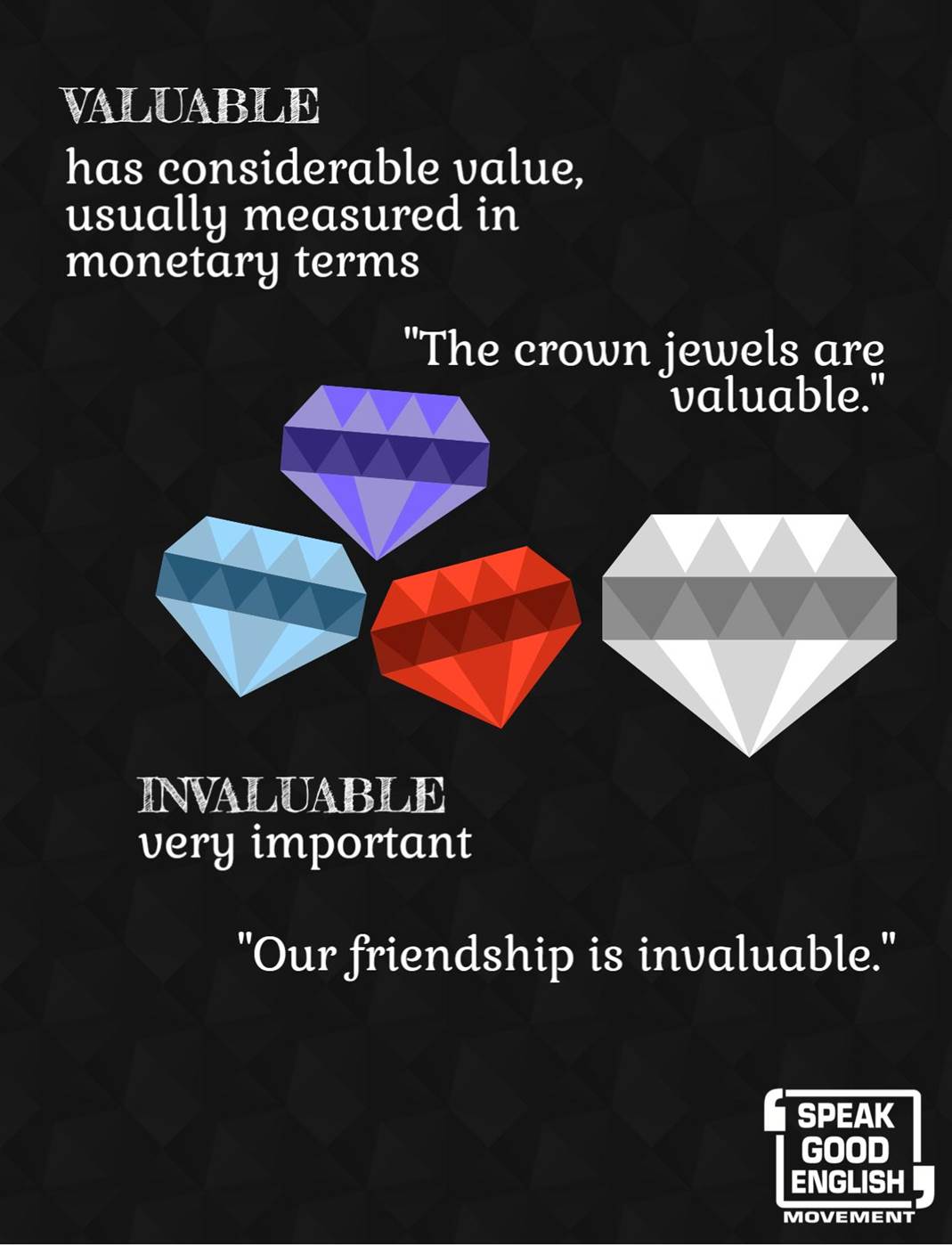
46. What is the difference between ‘Lay’ and ‘Lie’?
The biggest difference is that ‘lay‘ requires an object object, and ‘lie’ does not. However, when past tense is involved, the past tense of lie is ‘lay‘, and the past tense of ‘lay‘ is ‘laid‘.
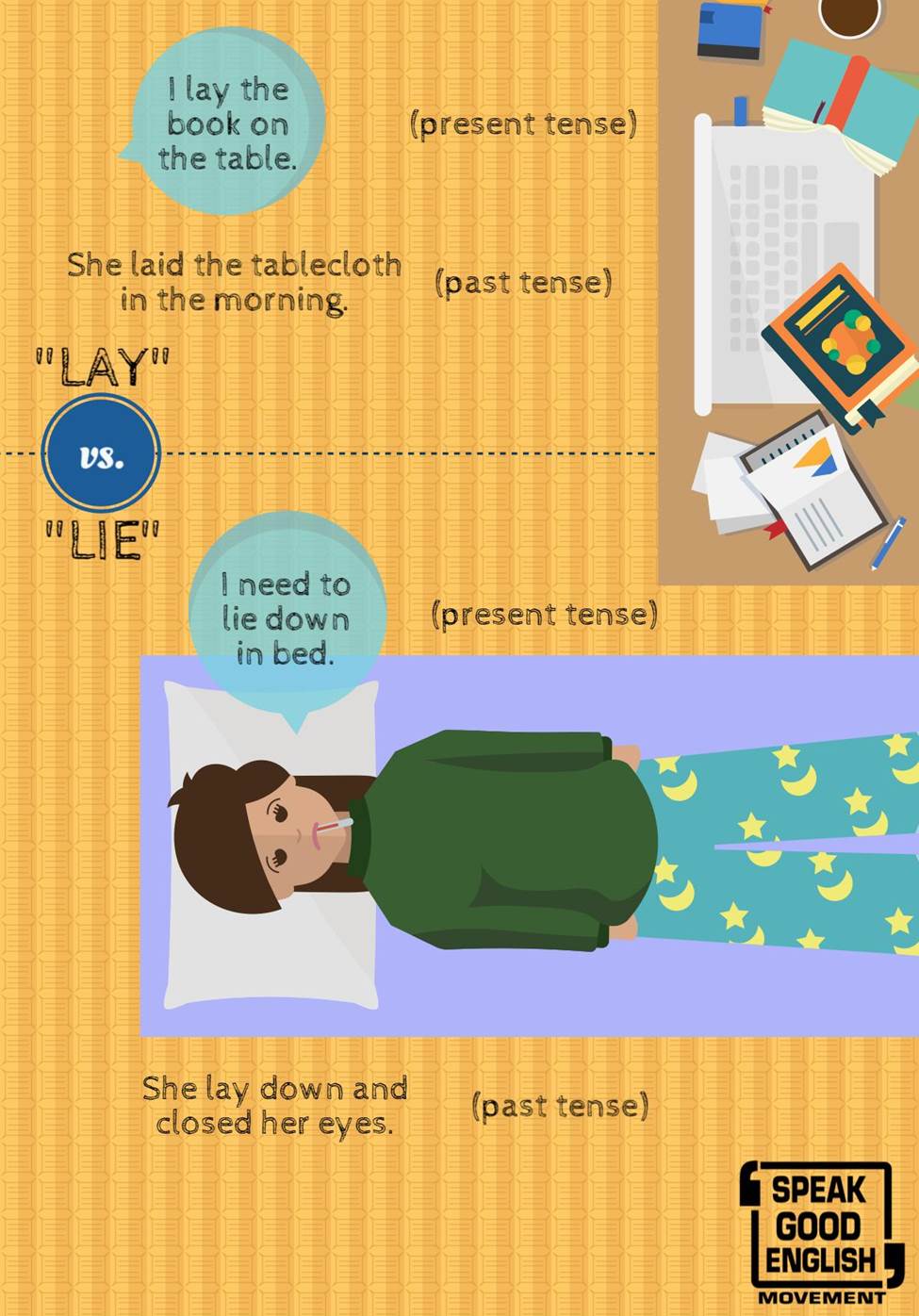
47. What is the difference between ‘leek’ and ‘leak’? Is one a typo or the other?
The two have very different meanings but are frequently confused because they are pronounced the same way.
A ‘leek‘ is a plant that can be cooked and eaten.
A ‘leak‘, however, refers to a hole which something (usually a liquid or gas) can escape from. For example, “The gas tubing had a leak“.
48. What is the difference between ‘let’, ‘let’s’ and ‘lets’? When do we use ‘let‘, ‘let’s‘ and ‘lets‘?
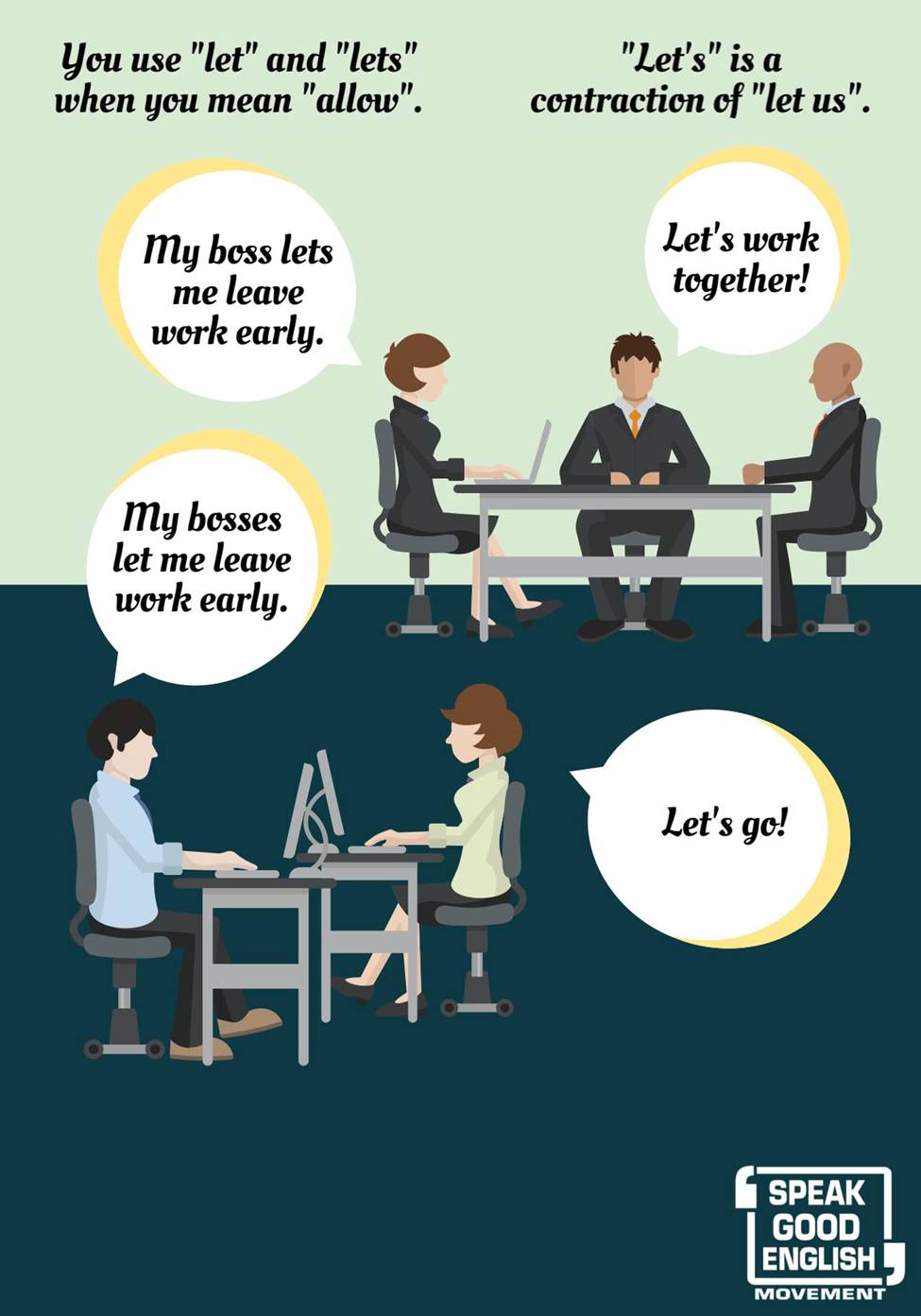
49. Look over vs. Overlook
Have you heard your teacher telling you that he would “overlook” your assignment? You would have been really upset if the teacher really did overlook your homework!
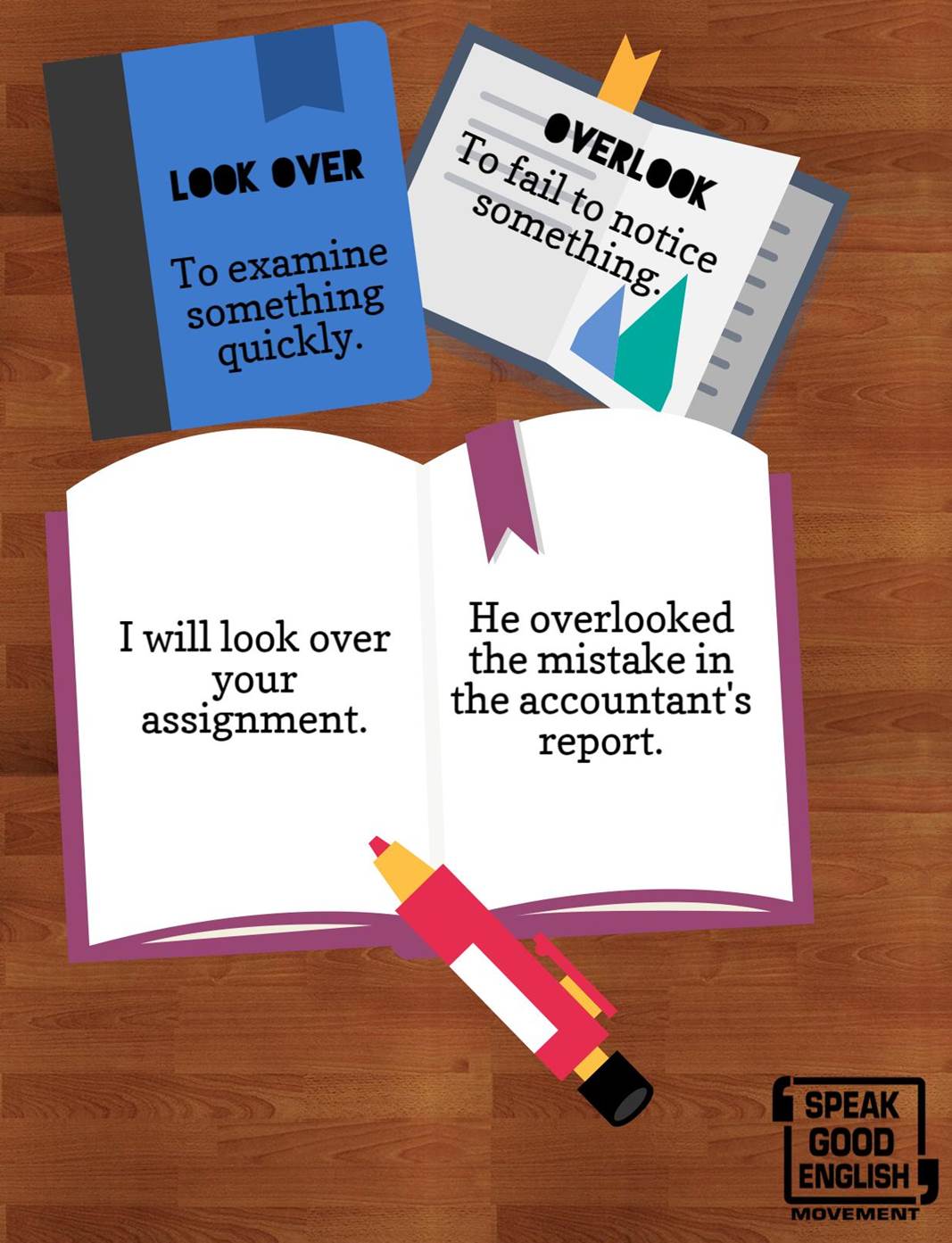
50. Much vs. Many
“Many” and “much” are both modifiers: words that add details, limits or change the meaning of another word or phrase. We sometimes tend to use these two words interchangeably but while they both show an amount of something, they are used in two different situations. But do you know when to use which modifier?
Use “much” with uncountable nouns. Uncountable nouns are things or concepts that we can’t divide into individual elements. When referring to countable nouns, use “many”. These are things that we can count.
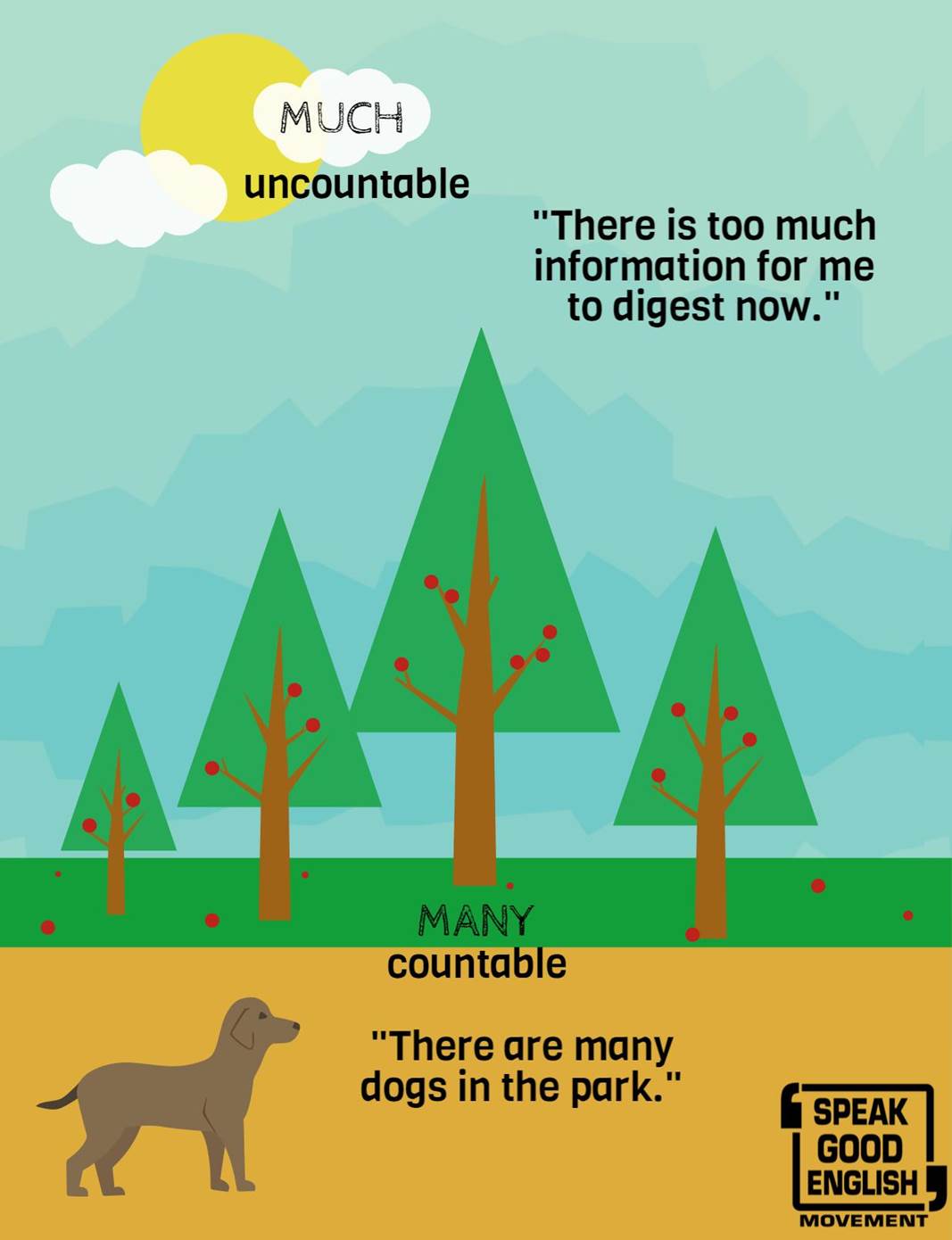
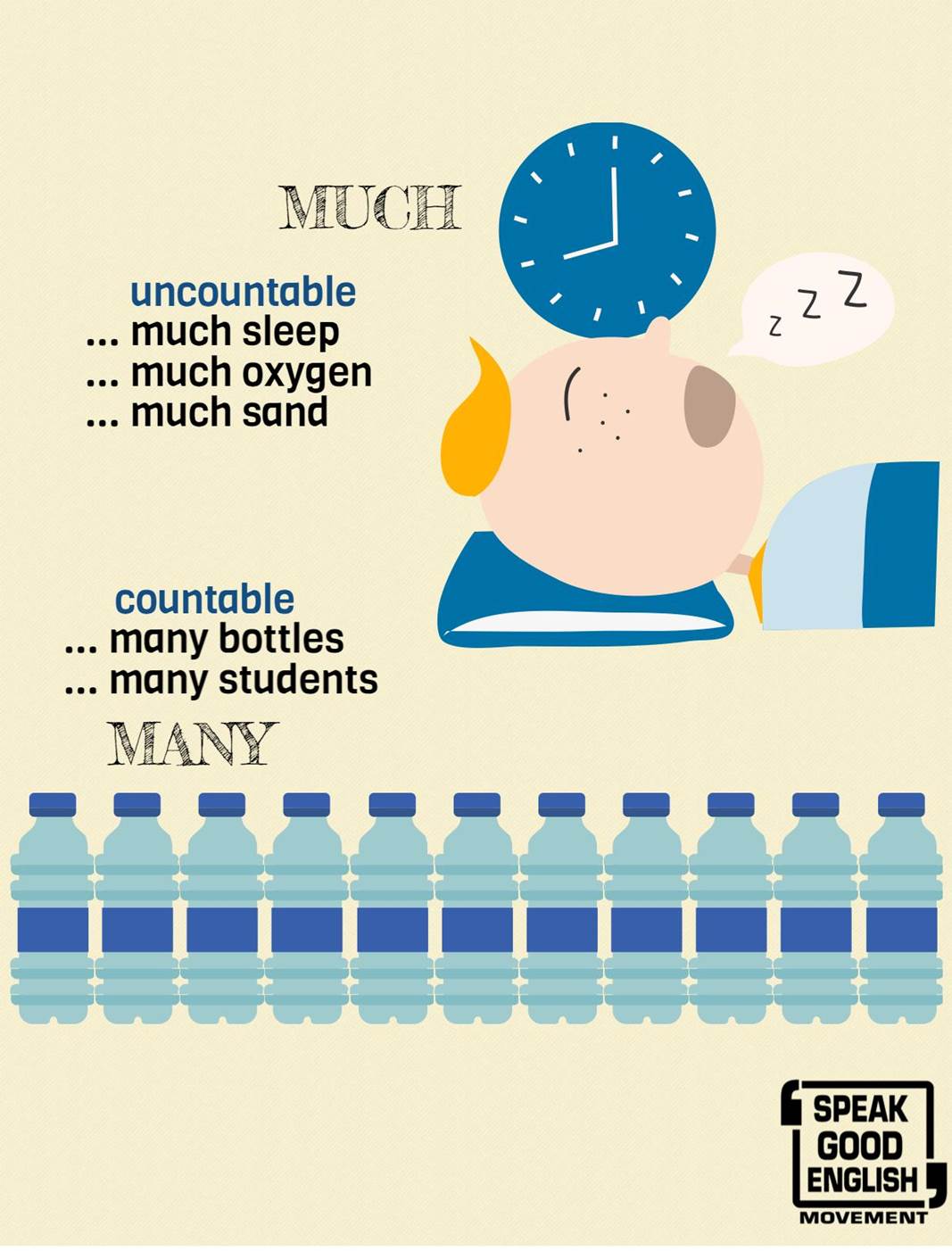
51. What is the difference between ‘moral’ and ‘morale’? Are they misspellings of the same word?
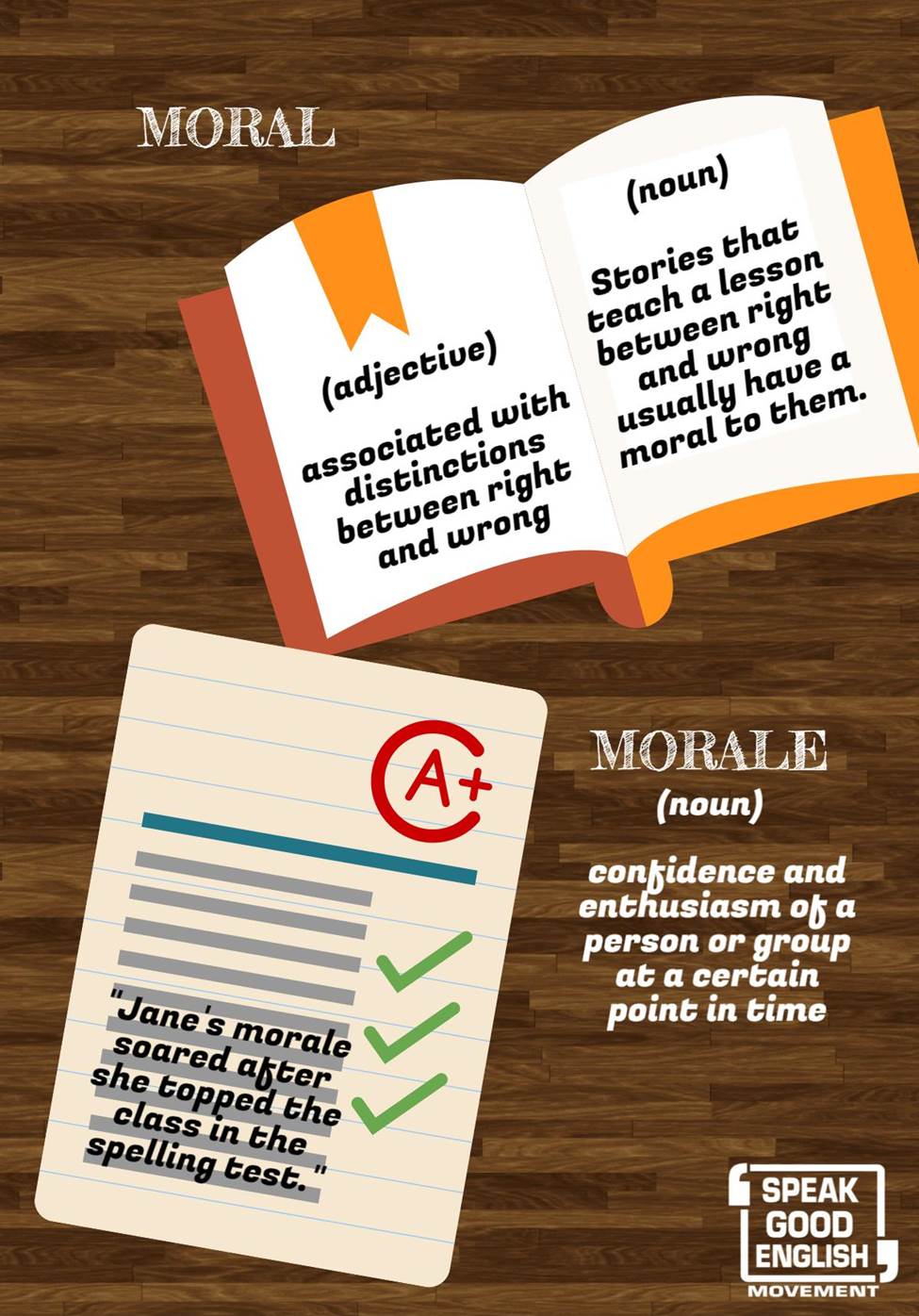
52. Nauseous vs. Nauseated
After a long road trip along winding roads, have you ever commented that you feel “nauseous”? This is probably one of the most common mistakes we unknowingly make because of its widespread use. I believe none of us wants to have the ability to make someone else nauseated!
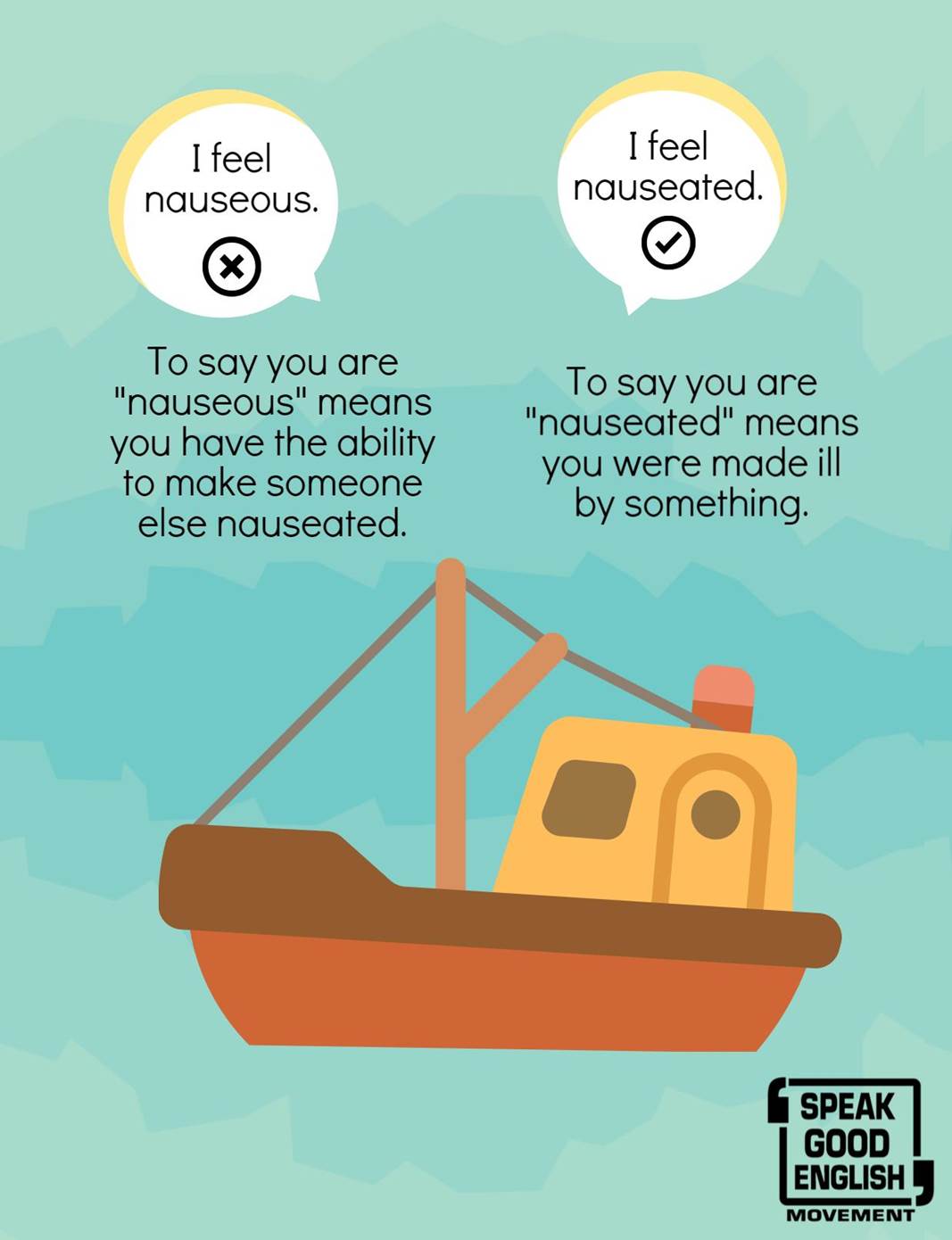
53. Upon vs. Out of
We often hear students comparing test scores. “Upon” is a more formal term for the word “on”, thus we would actually be saying “10 on 10 questions correct” which would be grammatically wrong. Here’s an example of how to use the word “upon” correctly: “The teacher immediately gave out the test scores upon her arrival at the classroom.”
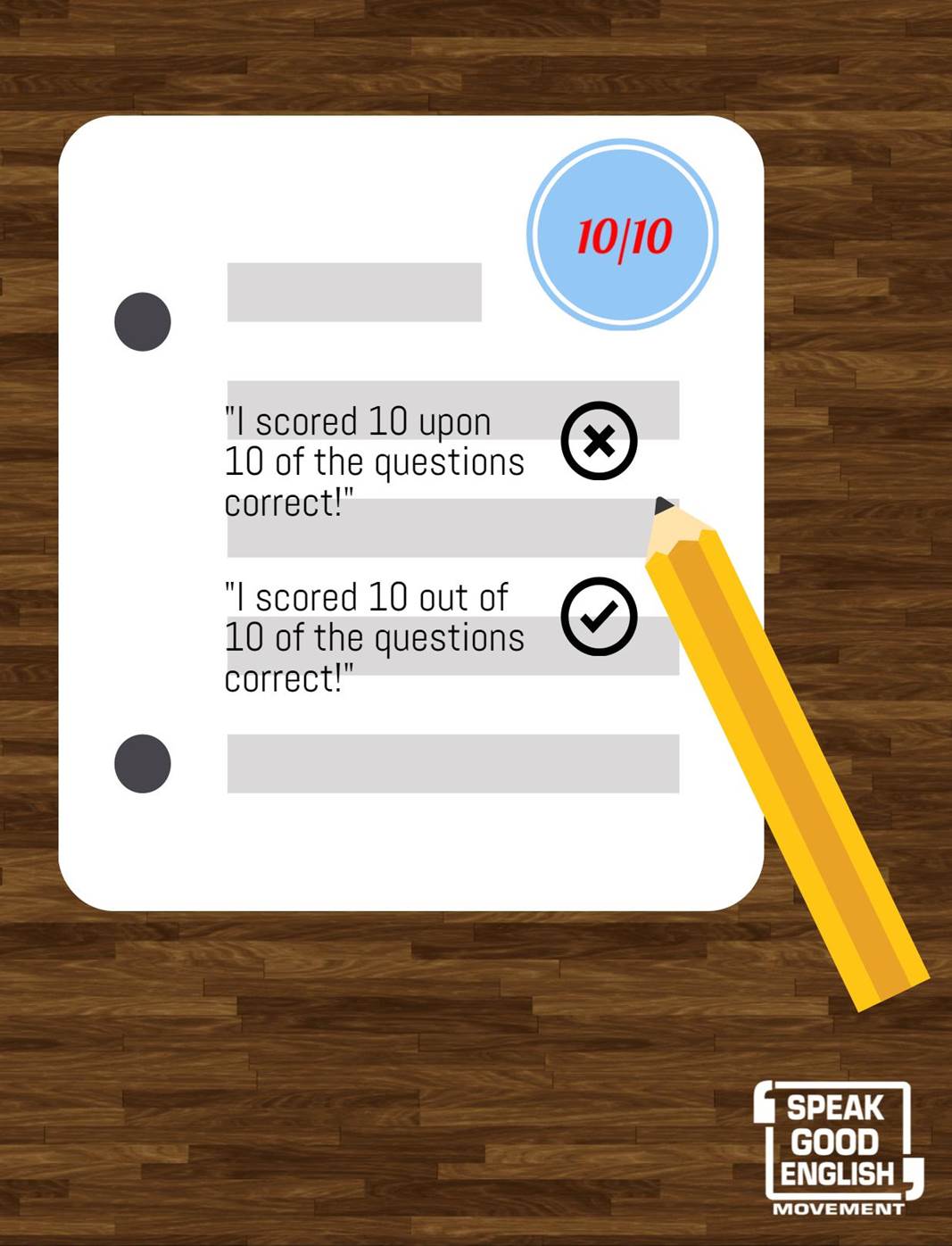
54. What is the difference between “support of” and “support to”? Should it be – Thank you for your support “of” something or support “to” something?
It should be “thank you for your support of…”!
55. Parameter vs. Perimeter
At one glance, the word “parameter” and “perimeter” may look and even sound alike. However, there are differences in their meanings and pronunciations. “Parameter” is pronounced with a short “a” sound; “perimeter” is pronounced with a short “i” sound followed by a short and controlled “e” sound.
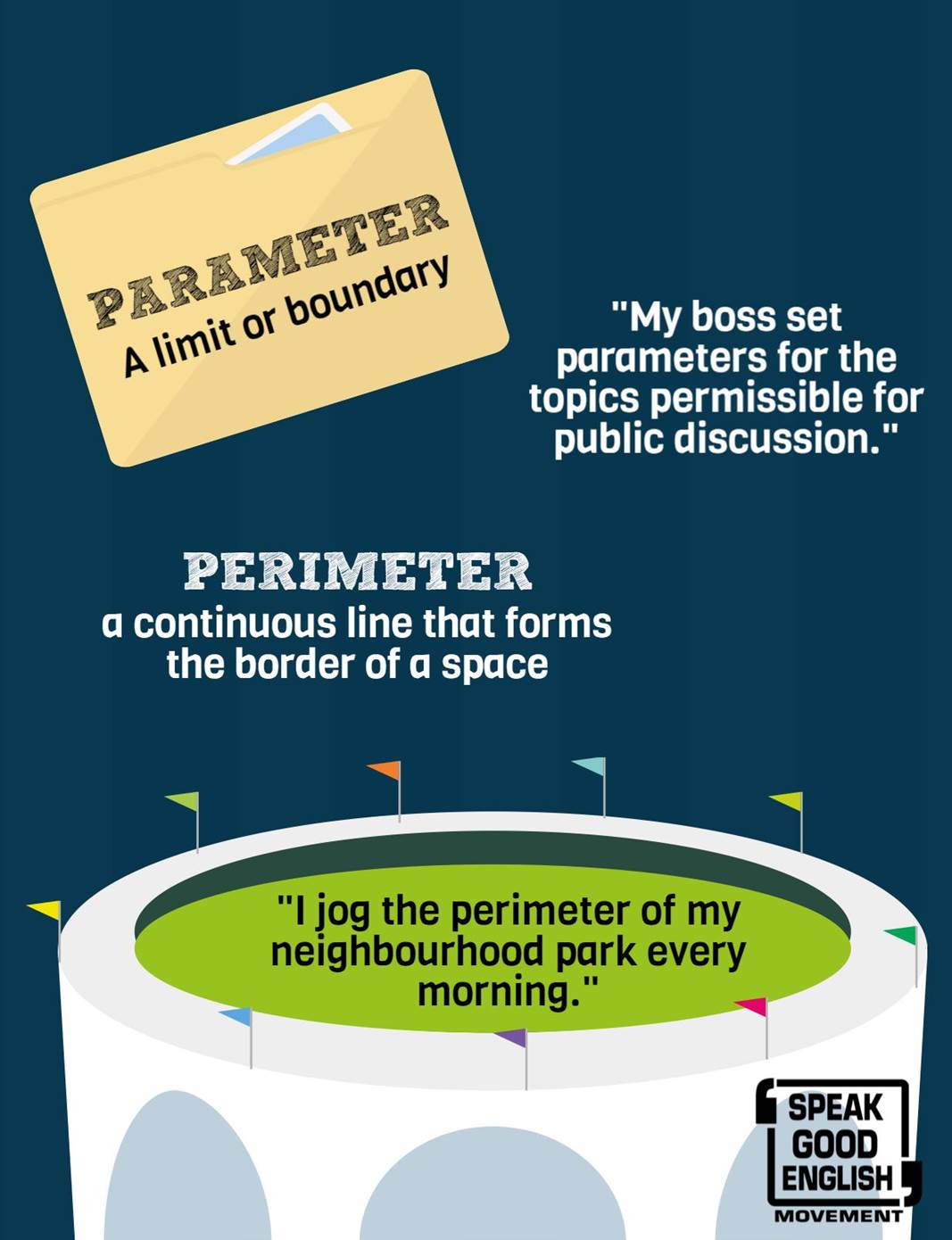
56. What is the difference between ‘pray’ and ‘prey’?
Both words have entirely different meanings. 'Pray' is mostly used as a verb while 'prey' can be used as both a verb or a noun.
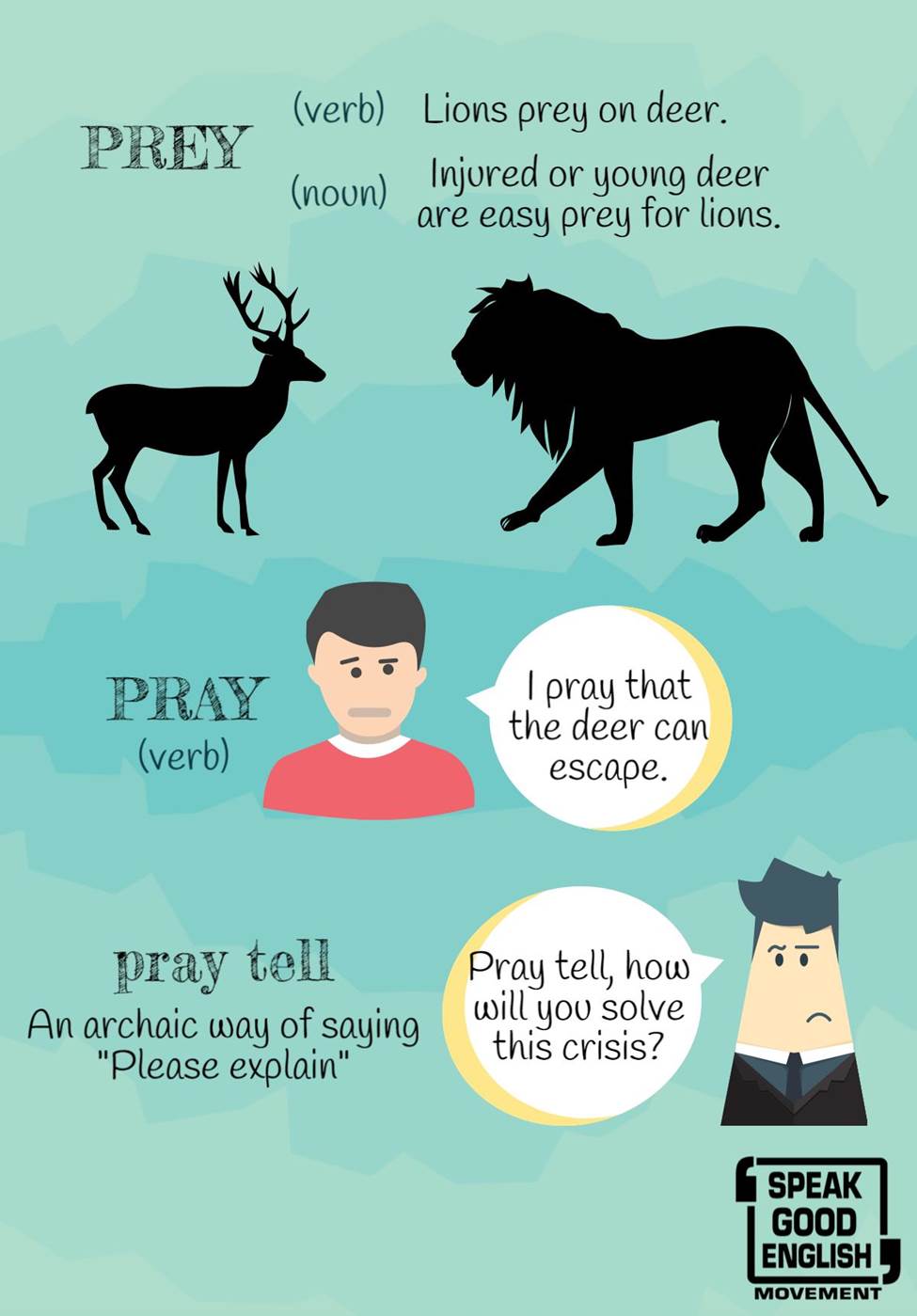
57. Purposely vs. Purposefully
Although they sound similar, the words purposely and purposefully are used to describe different scenarios.
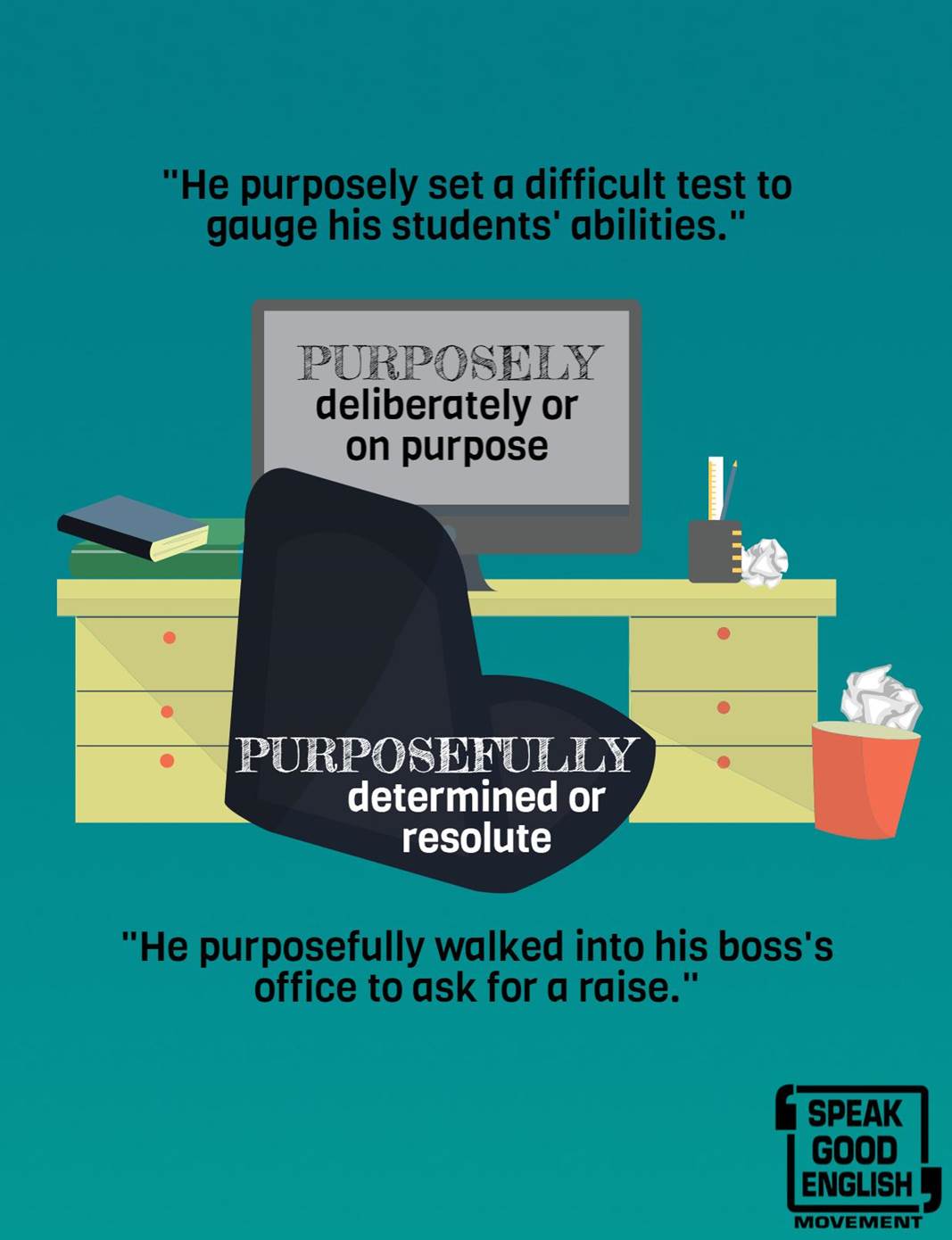
58. Rise vs. Raise
When used as a verb, they both have the same meaning “to move upwards”. The difference is that “rise” is a verb that doesn’t take an object while “raise” is a verb that requires an object.
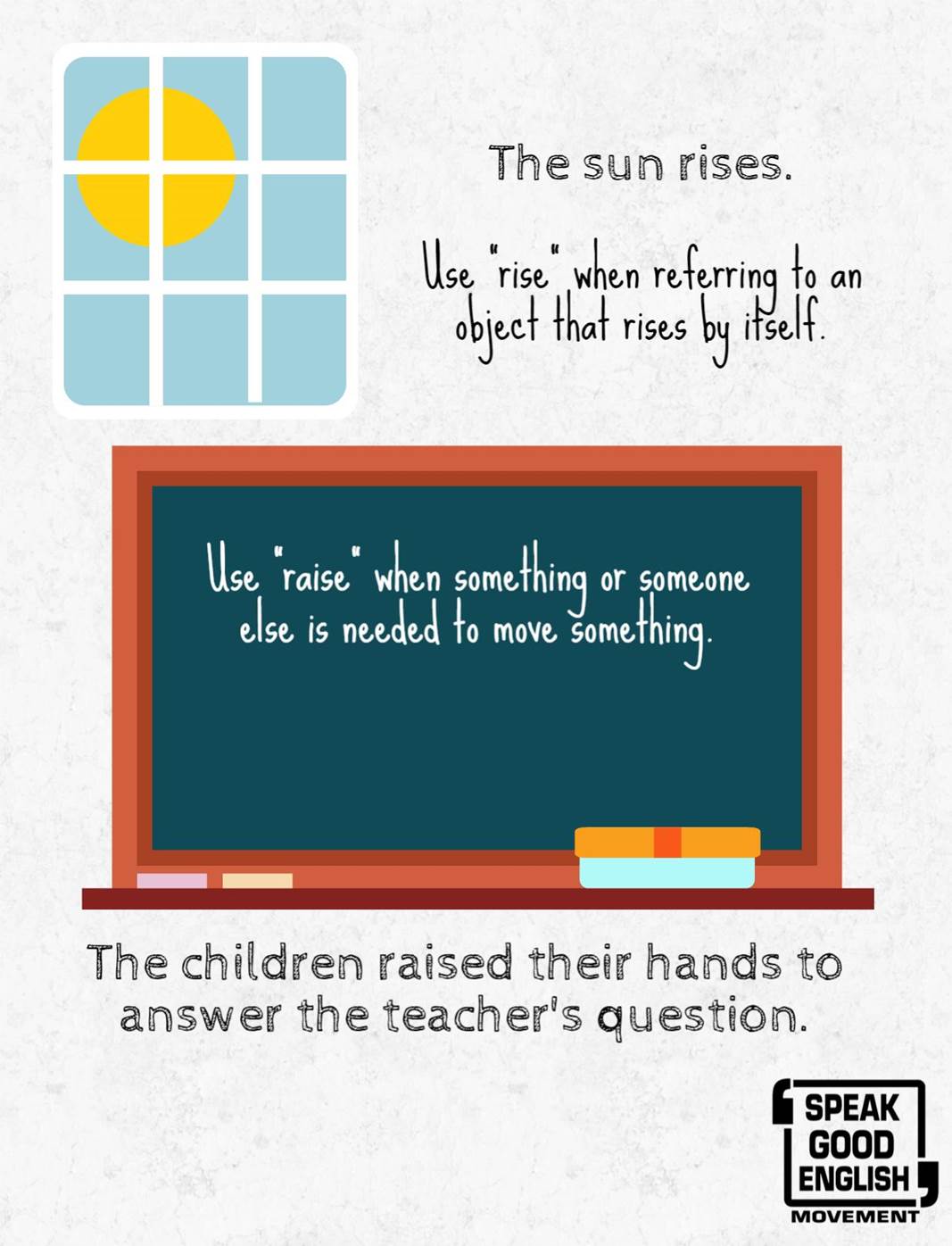
59. What is the difference between ‘wring’ and ‘ring’?
Although both words are pronounced exactly the same way, they are used quite differently.
When do I use “ring”, “rang” and “rung”?
The present tense is used for present actions, the past tense for past actions, and the past participle for actions in the past that have been completed. So to use “ringing a doorbell” as an example, if you’re talking about someone ringing the doorbell, then you’d say “Carrie always rings the doorbell twice when she’s here”. If you’re talking about the past, then you’d say “Carrie rang the doorbell five minutes ago”. If you want to specifically mention the action of the phone ringing that has been completed, then you’d say “Carrie had rung the doorbell five minutes ago”. The same applies for things like:
- arise, arose, arisen
- begin, began, begun
- ring, rang, rung
- sink, sank, sunk
- withdraw, withdrew, withdrawn
- shrink, shrank, shrunk
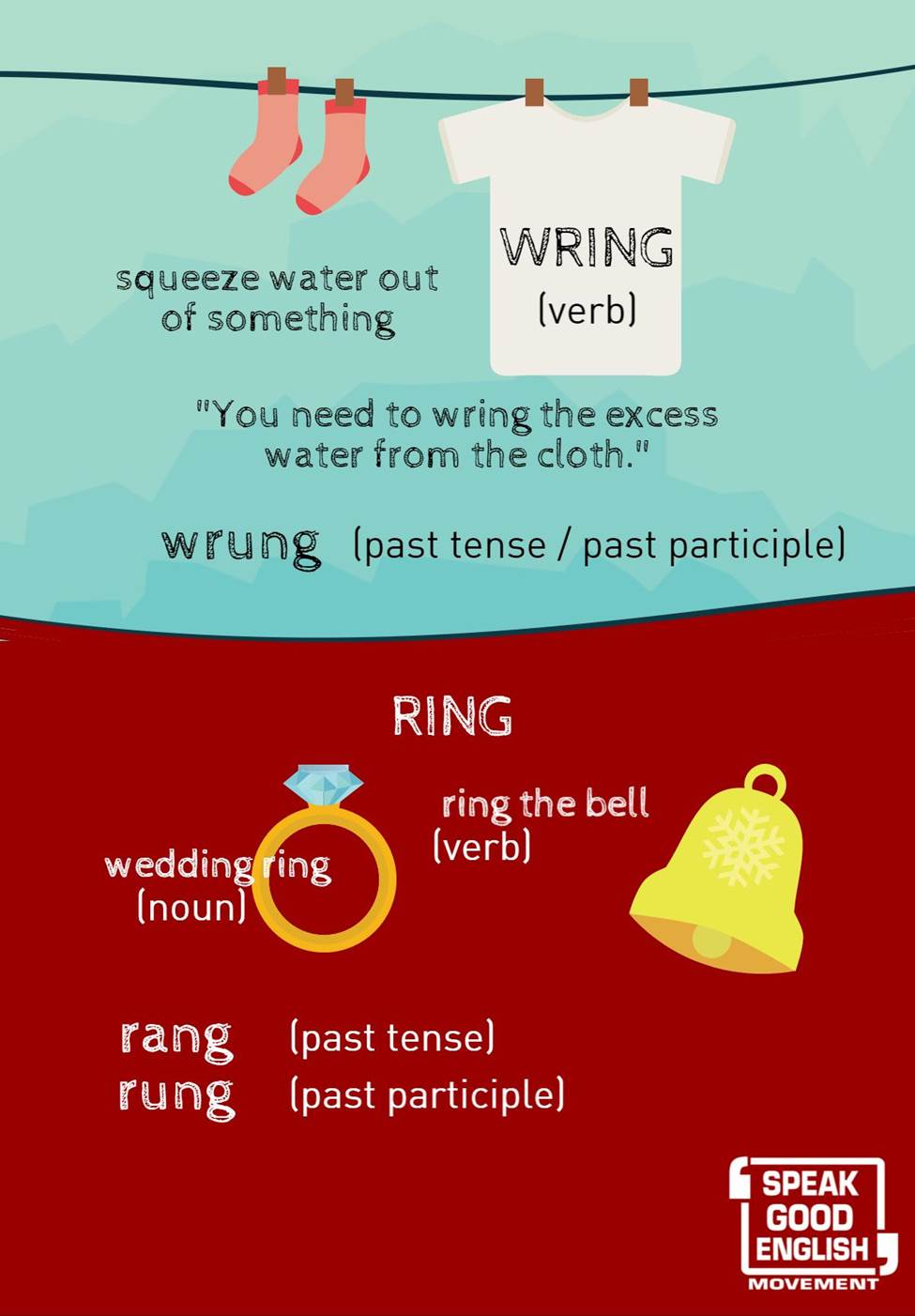
60. Skim vs. Scan
Dad is actually skimming through the newspapers because he’s quickly gathering information using the titles, summaries and captions found in the newspaper. You scan to find something specific.
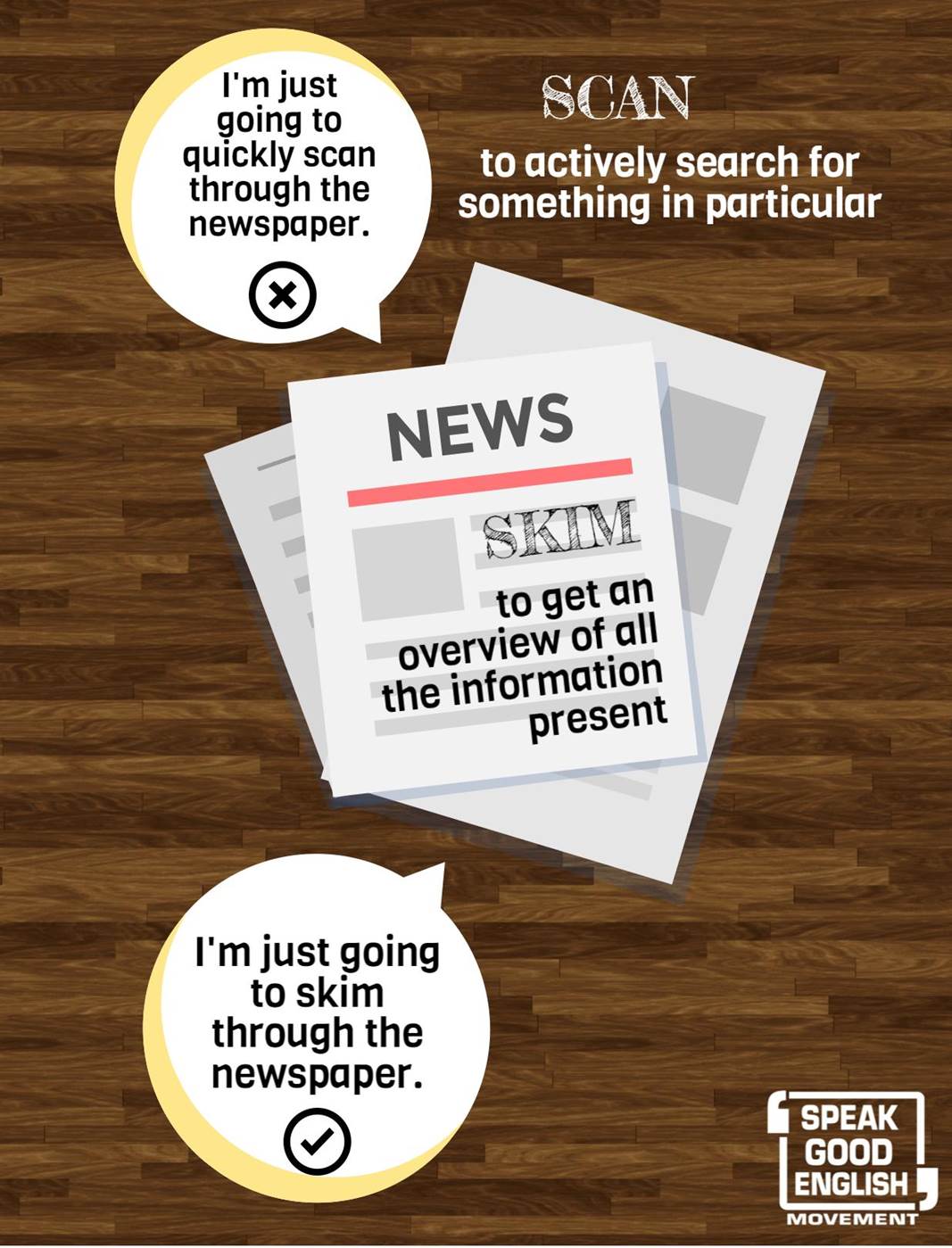
61. See vs. Watch
We use our eyes for these two actions, but they have quite different meanings.
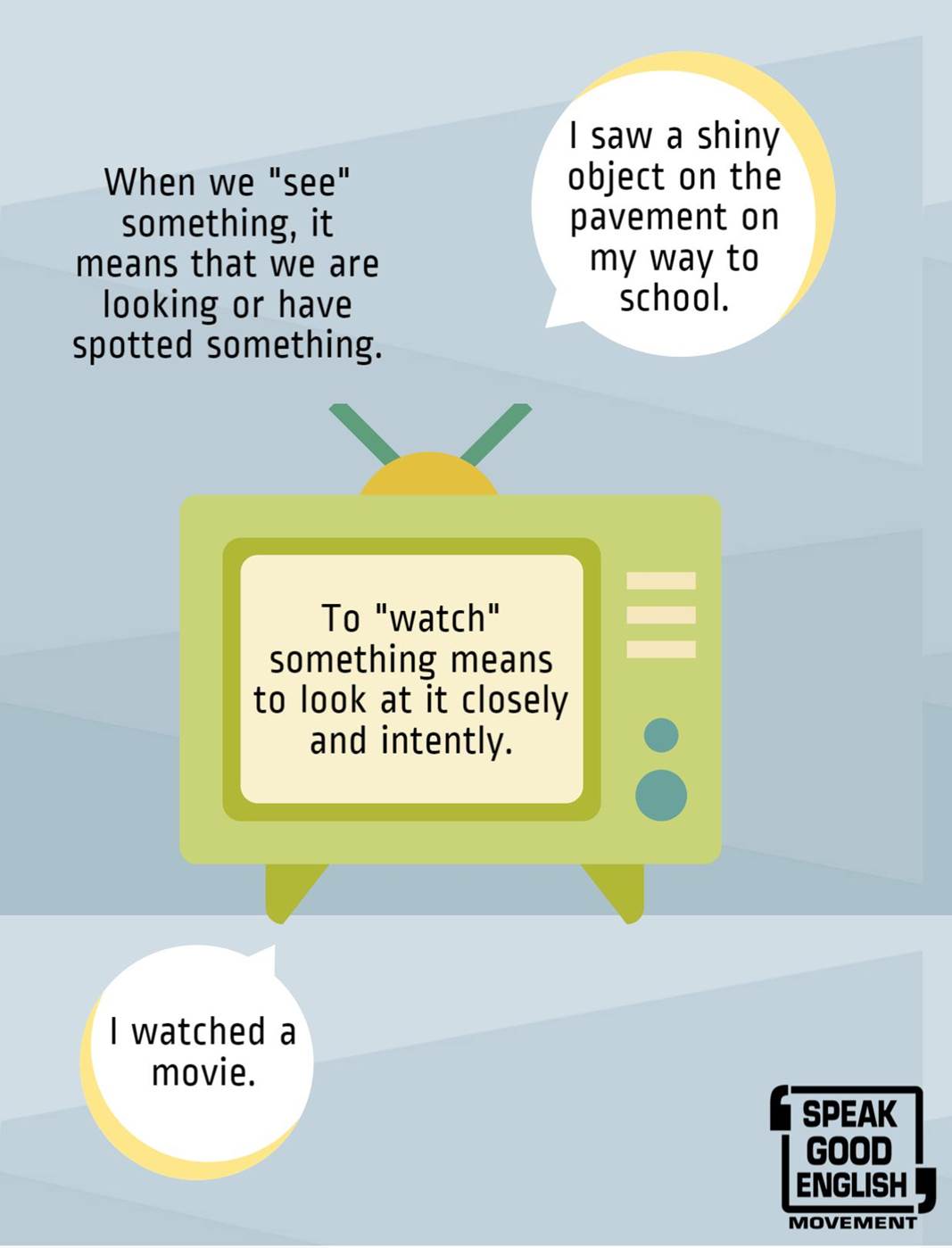
62. What is the difference between ‘signage’ and ‘signages’? Is ‘signage‘ a collective noun? Should we use ‘signages‘ instead?
Collective nouns are words used to describe a group of objects. For example, a school of fish, a shiver of sharks. ‘School’ and ‘shiver’ are collective nouns. While ‘signage‘ is used to represent a group of signs, we wouldn’t call it a collective noun. That is because a collective noun is a different word used to describe the group.
Usually, when referring to a group of signs, we just call them ‘signage‘. However, that is not to say that using ‘signages‘ is wrong. You can use ‘signages‘ when you refer to more than one group of signs that are distinctly separate from each other.
63. Sometime vs. Some time
Although they sound the same when spoken, these two phrases have different meanings.
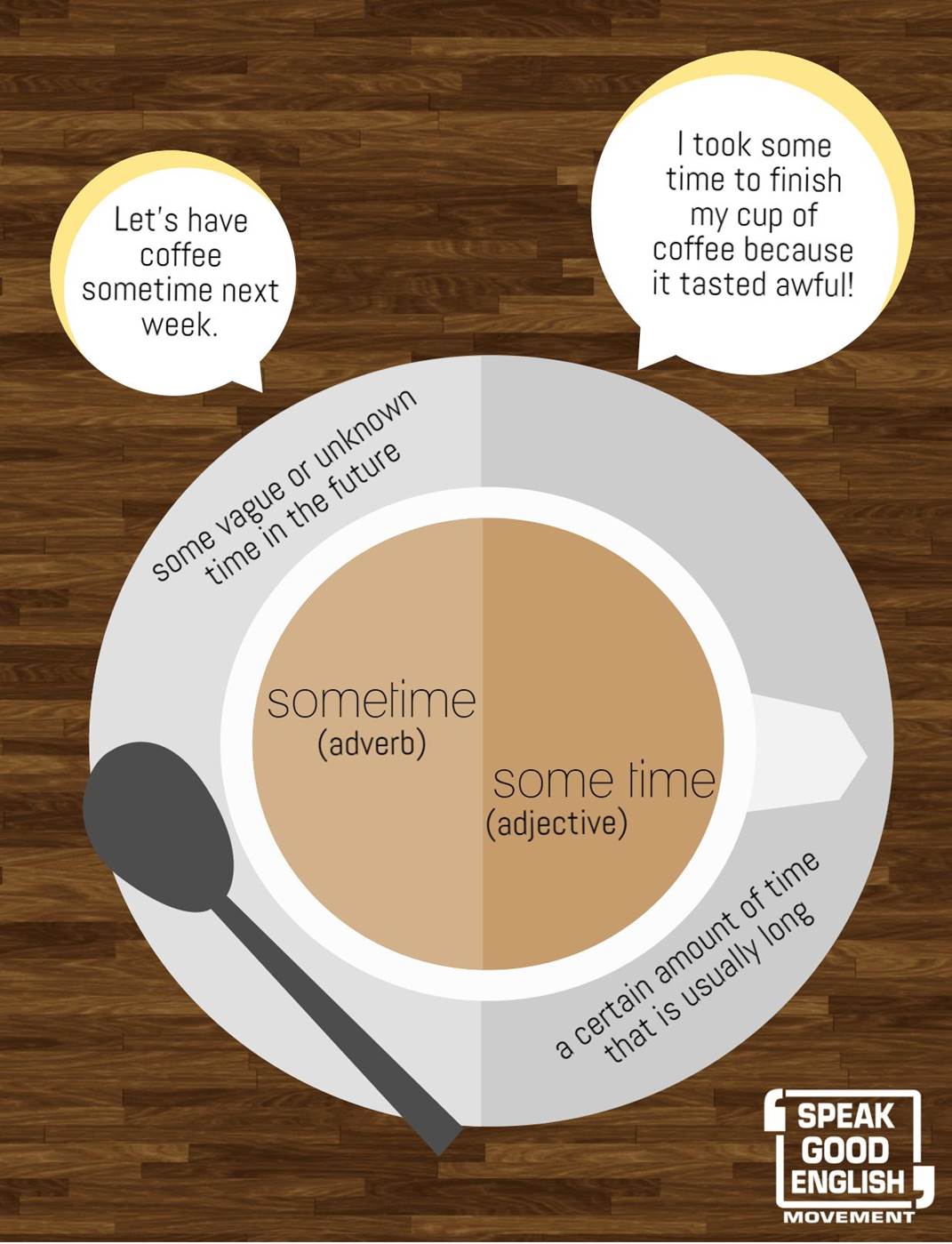
64. What is the difference between ‘spill’ and ‘spilt’? Do we use “I spilled my drink on you” or “I spilt my drink on you”?
Both are correct, it just depends on what you mean. If you say “when I spill my drink on you”, that means it has not happened yet but it will happen in the future. And if you say “when I spilt my drink on you”, you are referring to the incident in the past when a drink was spilt on you.
When we type ‘spilt‘, we get that red squiggly line that tell us that it’s spelled incorrectly. If, like us, you’ve always wondered whether ‘spilled‘ or ‘spilt‘ is the right way of spelling, read on! Research has shown us that either is correct! Both words may be used interchangeably.
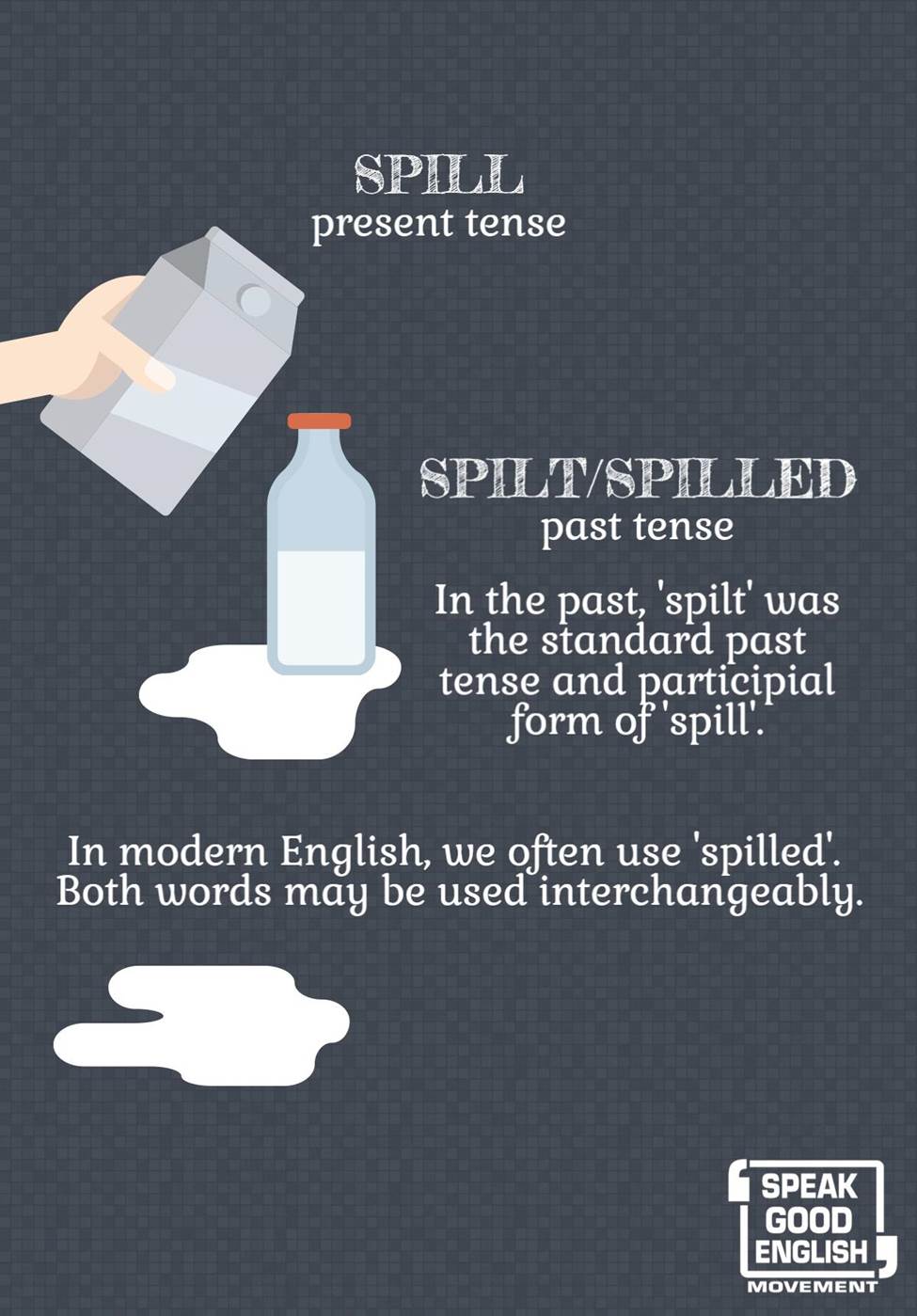
65. What’s the difference between ‘stationary’ and ‘stationery’?
Words that sound the same or have similar spellings can be a bit tricky as in this case of the word “stationary” and “stationery”. "Stationary" is an adjective. It means "having a fixed position", or "not moving". "Stationery", a noun, refers to writing materials such as pencils, pens and paper.
For “stationary” with the letter A, remember that a cAr is stationary when it is parked. For “stationery” with the letter E, remember that pEns are a type of stationery we use to write with.
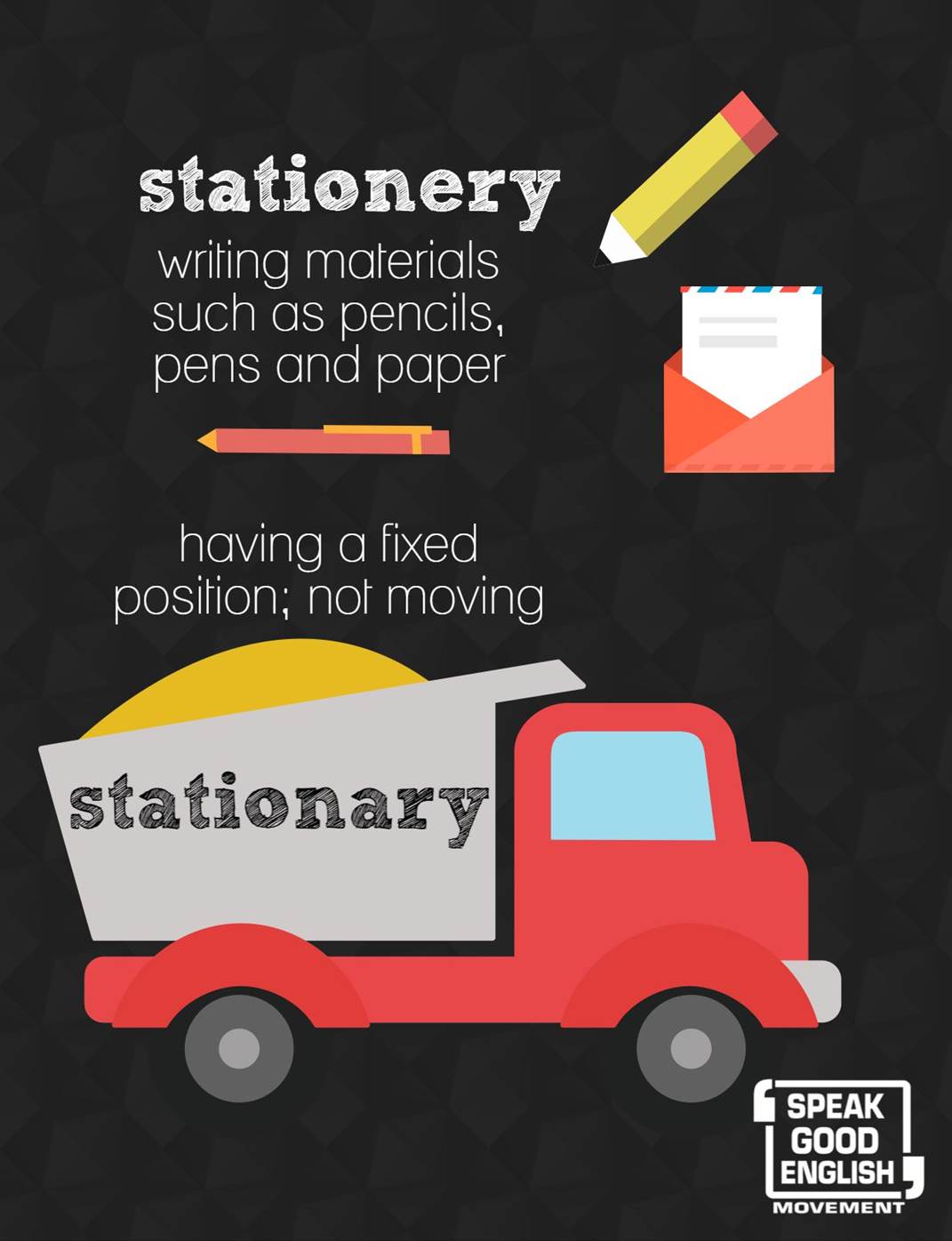
66. Stuff vs. Things
Another difference is that “stuff” can also be used as a verb. For example, “Mum stuffed the kitchen cupboards with more stuff.”
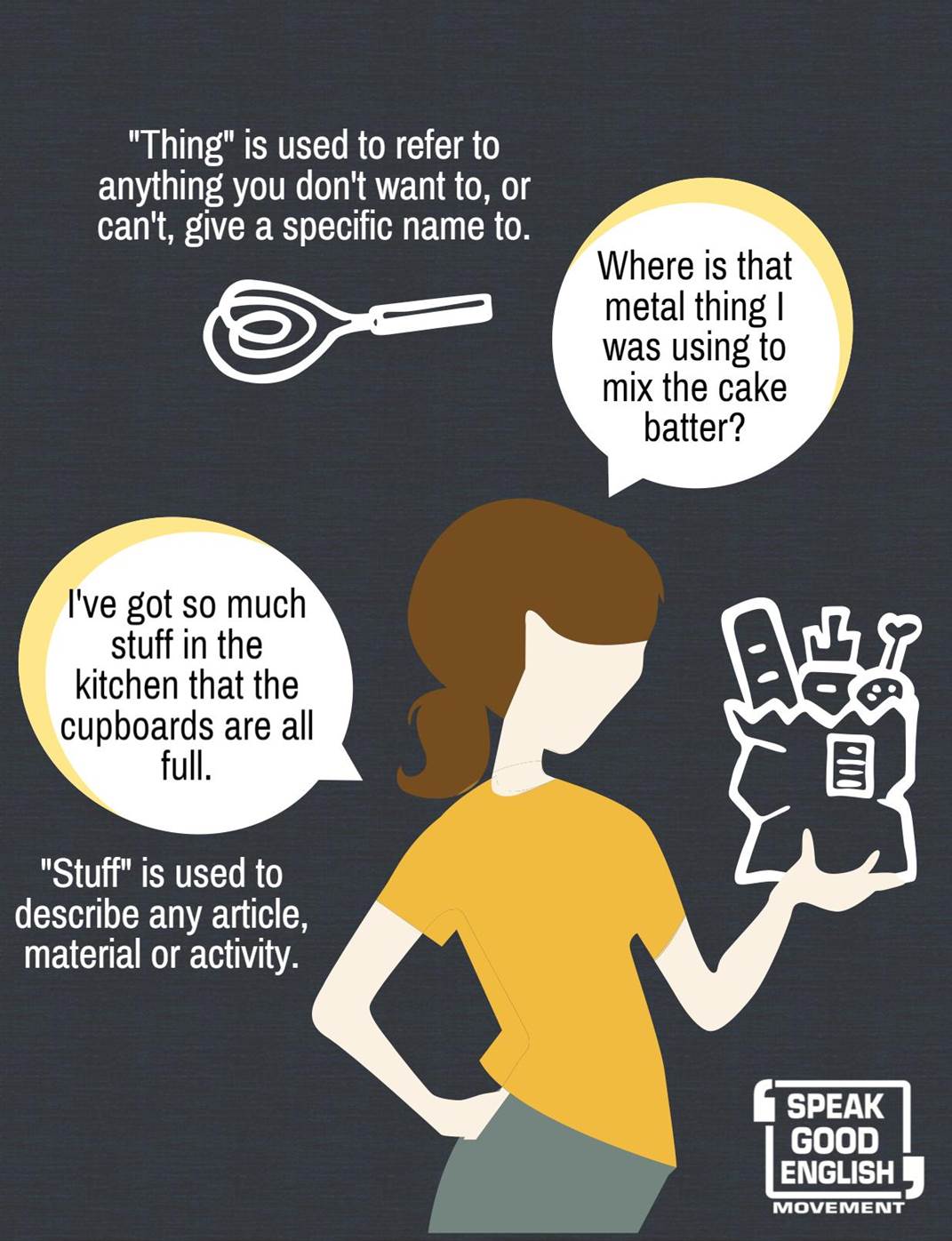
67. Than vs. Then
Some words may look and sound the same, but all it takes is one letter to change their meanings and uses.
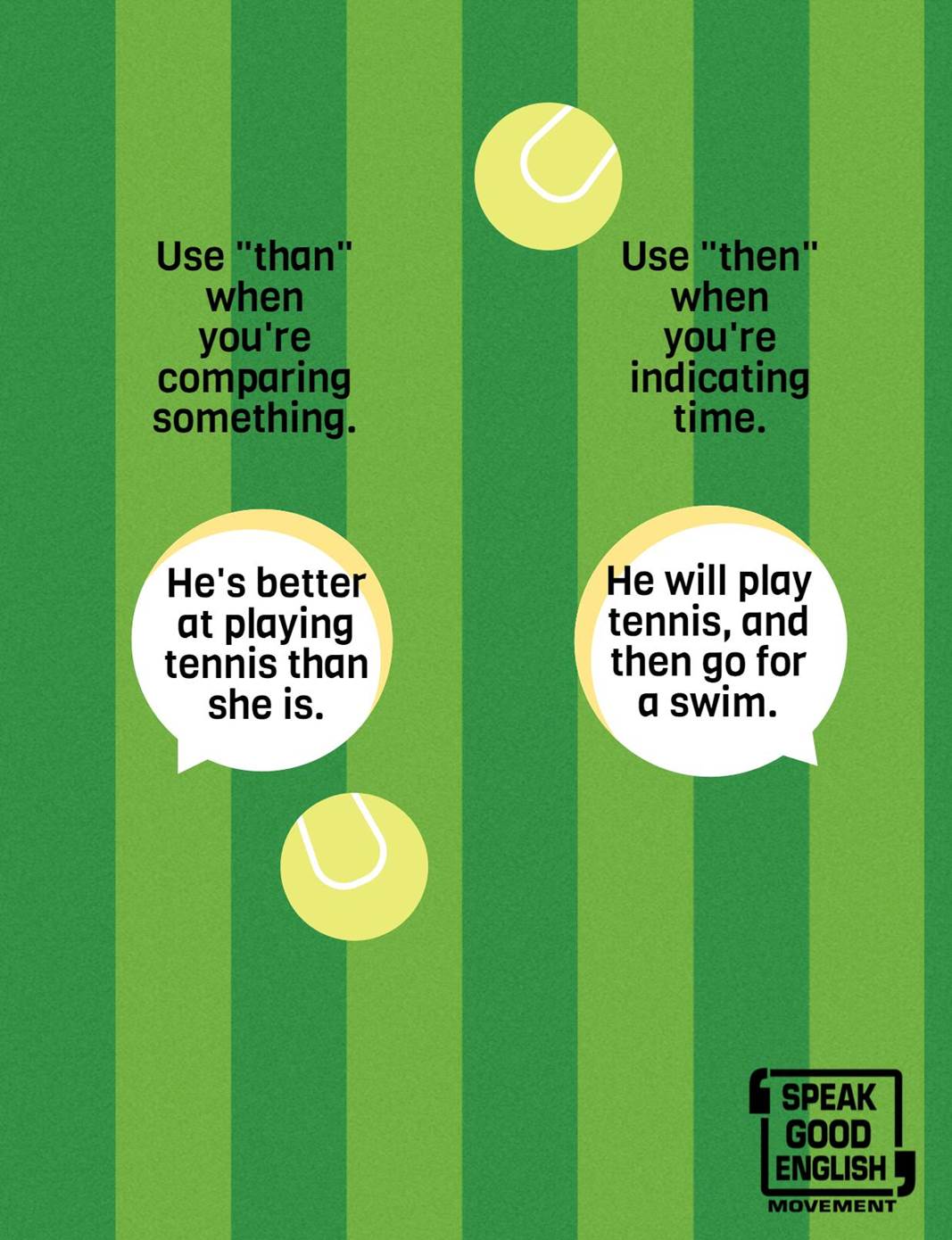
68. What is the difference between ‘youth’ and ‘youths’? When do we use either?
If you mean to refer to young people in general, you can use either, although it is better to use ‘youth‘.
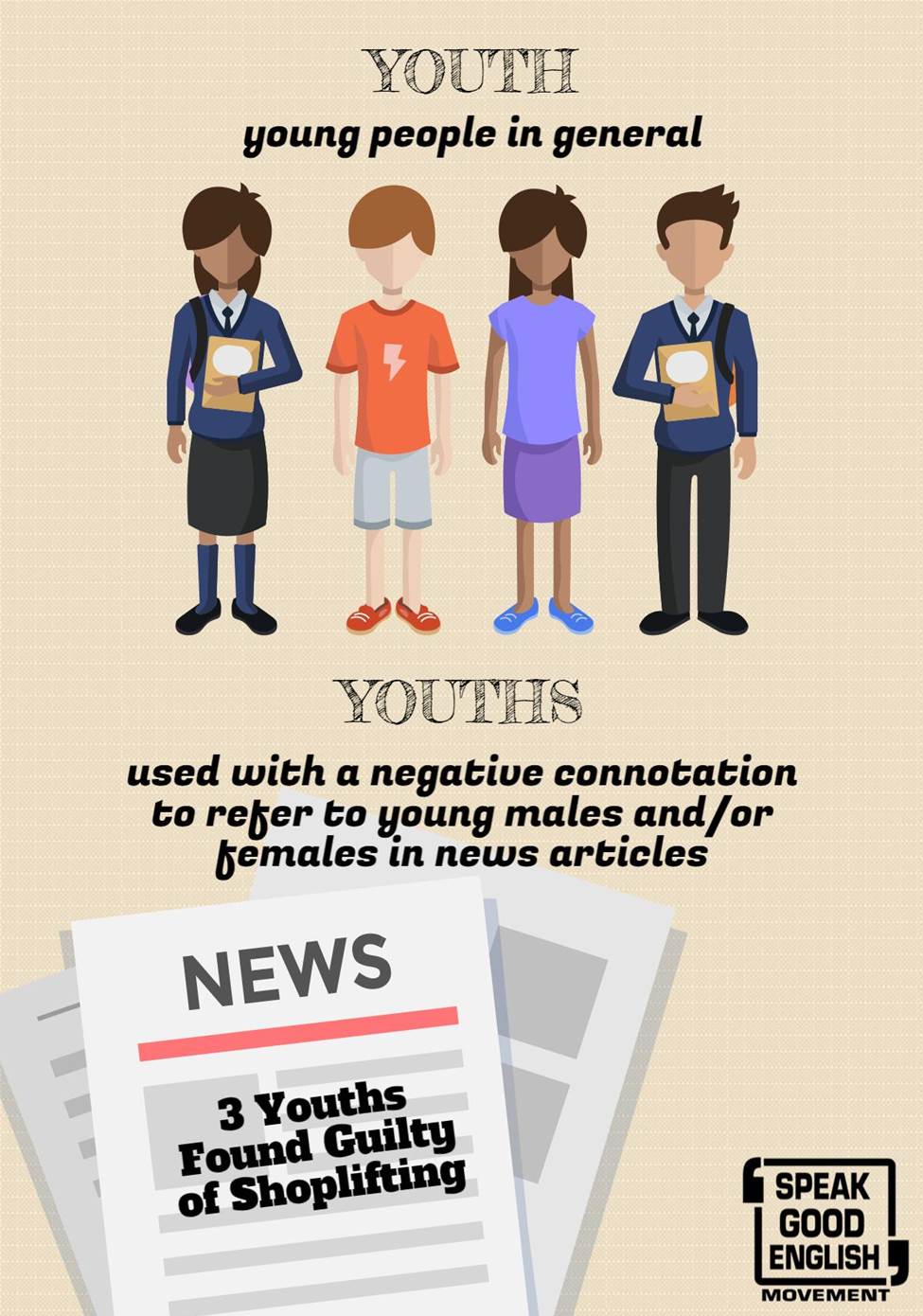
69. What is the difference between ‘waive’ and ‘wave’, or between ‘waiver’ and ‘waver’?
These two words are commonly mixed up because both words are pronounced the same way!
While ‘waiver‘ and ‘waver‘ are homophones (i.e. they are pronounced the same way), their meanings are quite different!
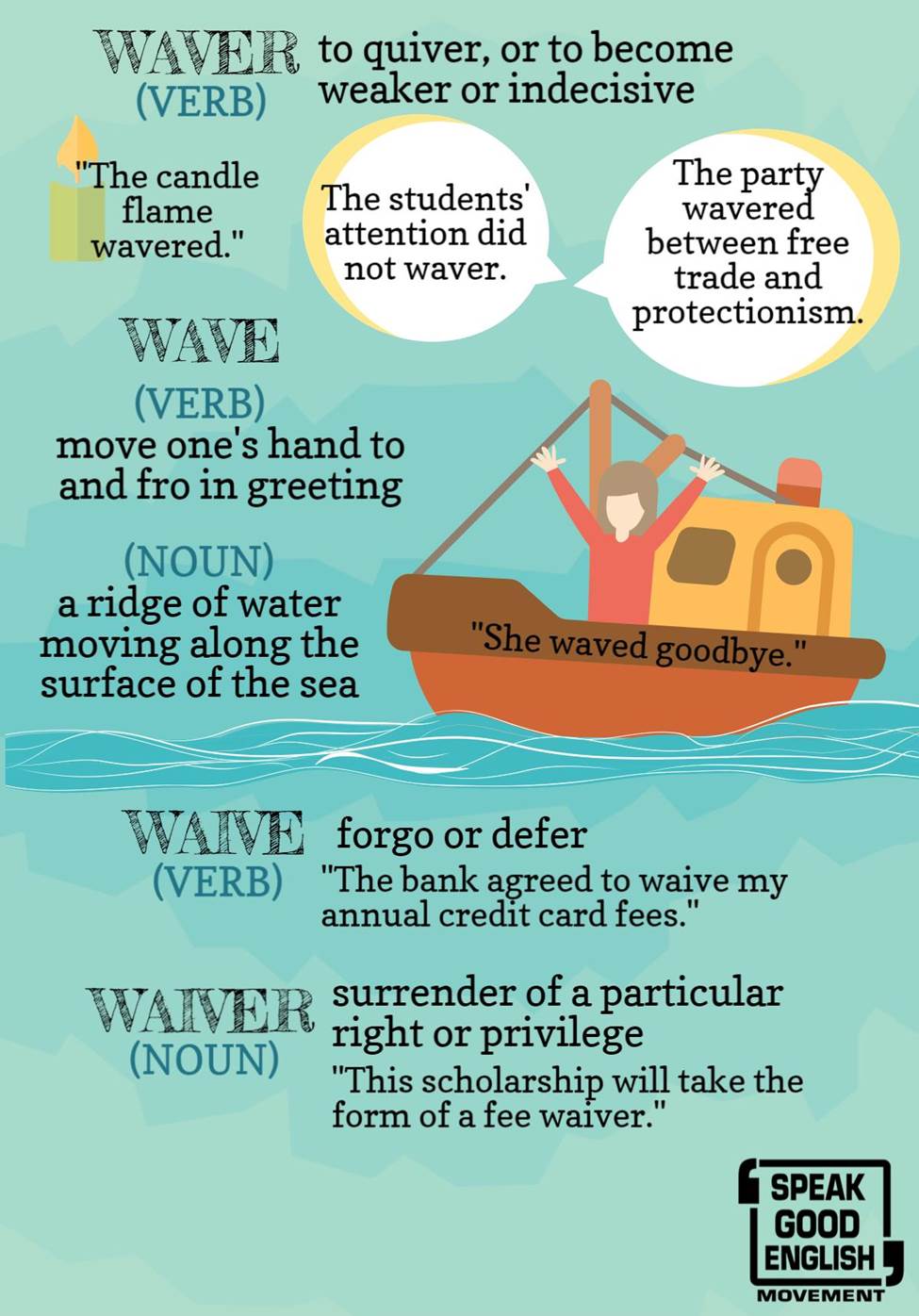
70. What is the difference between ‘whereby’ and ‘in which’?
It is the difference between two prepositions.
Prepositions are words that link words within a sentence.
‘Whereby‘ means ‘by which’, hence you merely need to look at the words ‘by’ and ‘in’.
If you need to refer to the means of getting something done, you use ‘by’. You might say something like “the rules by which you must follow” or “the rules whereby you must follow”.
If you need to refer to an inclusion within a physical or abstract space, you use ‘in which‘. You might say something like “this is the chair in which I sit” or “this is the time in which this art belongs”.